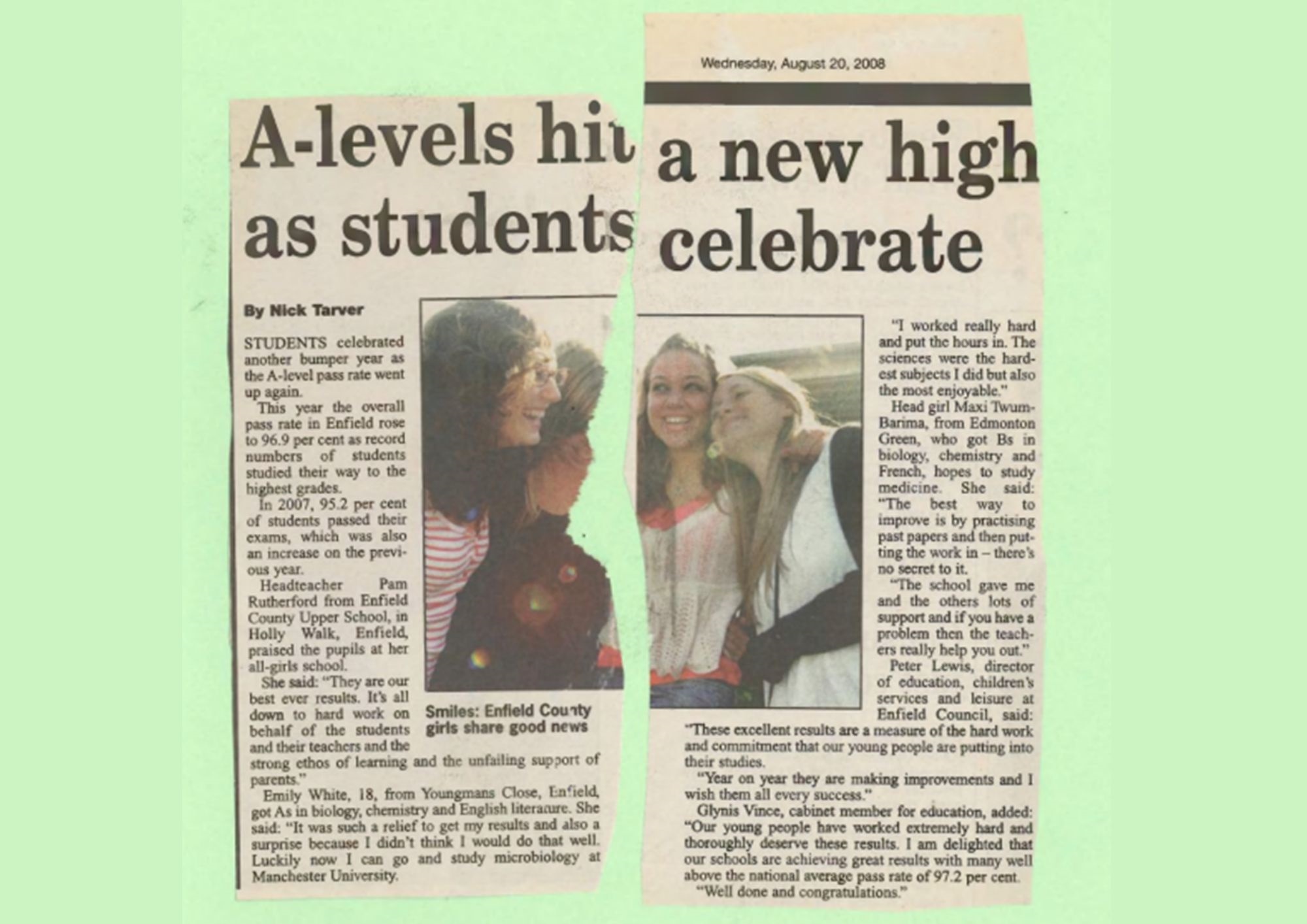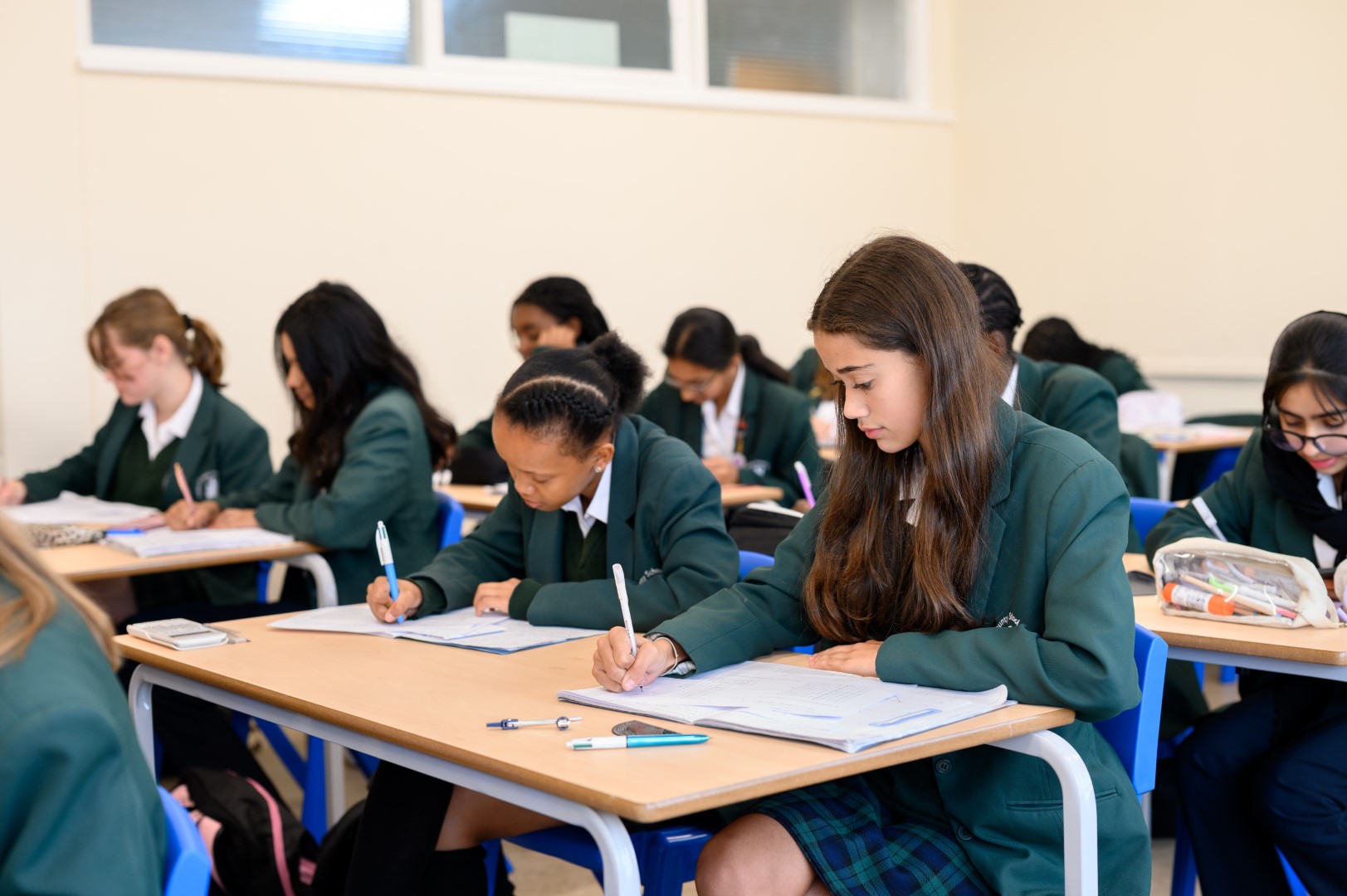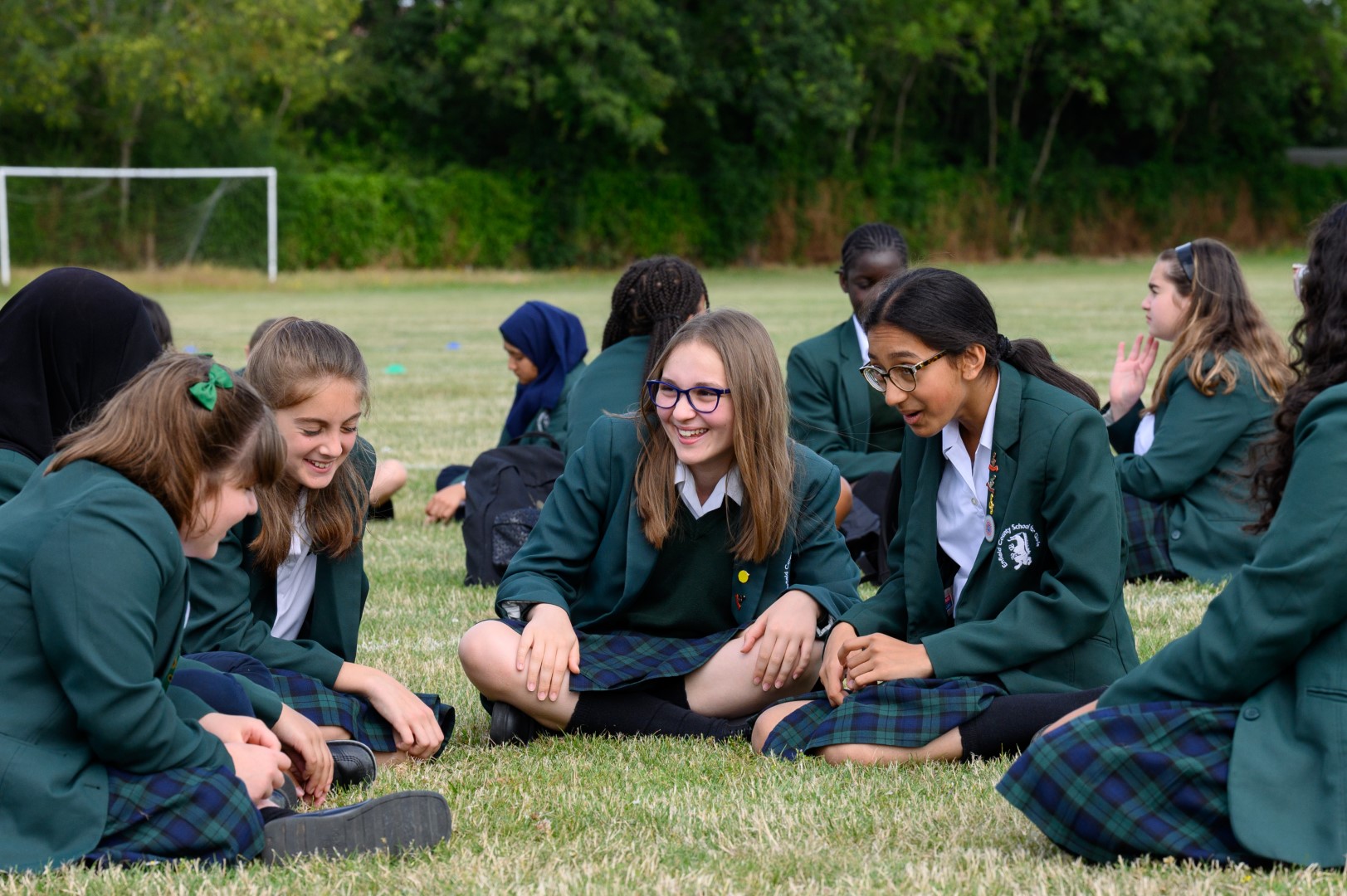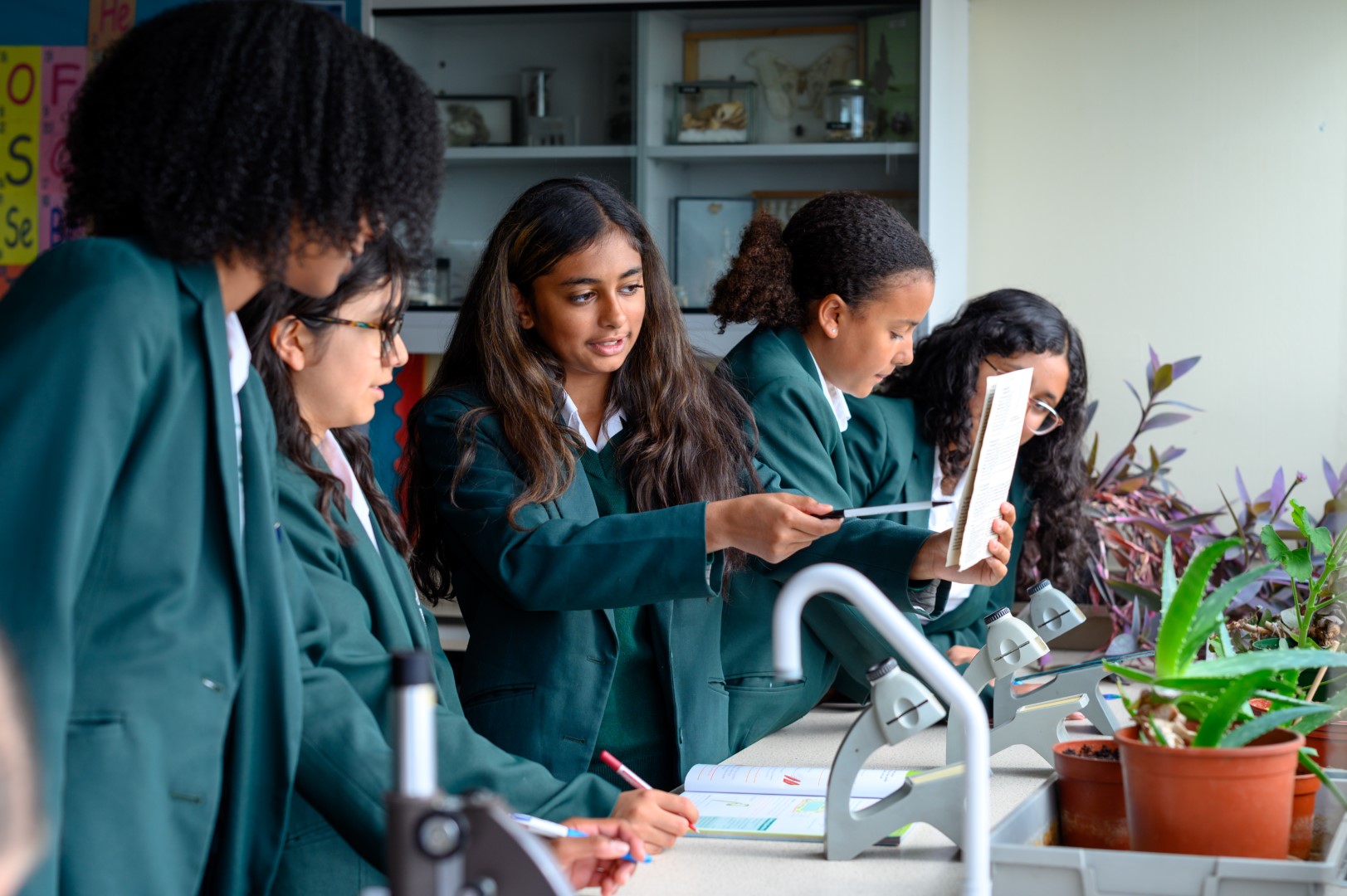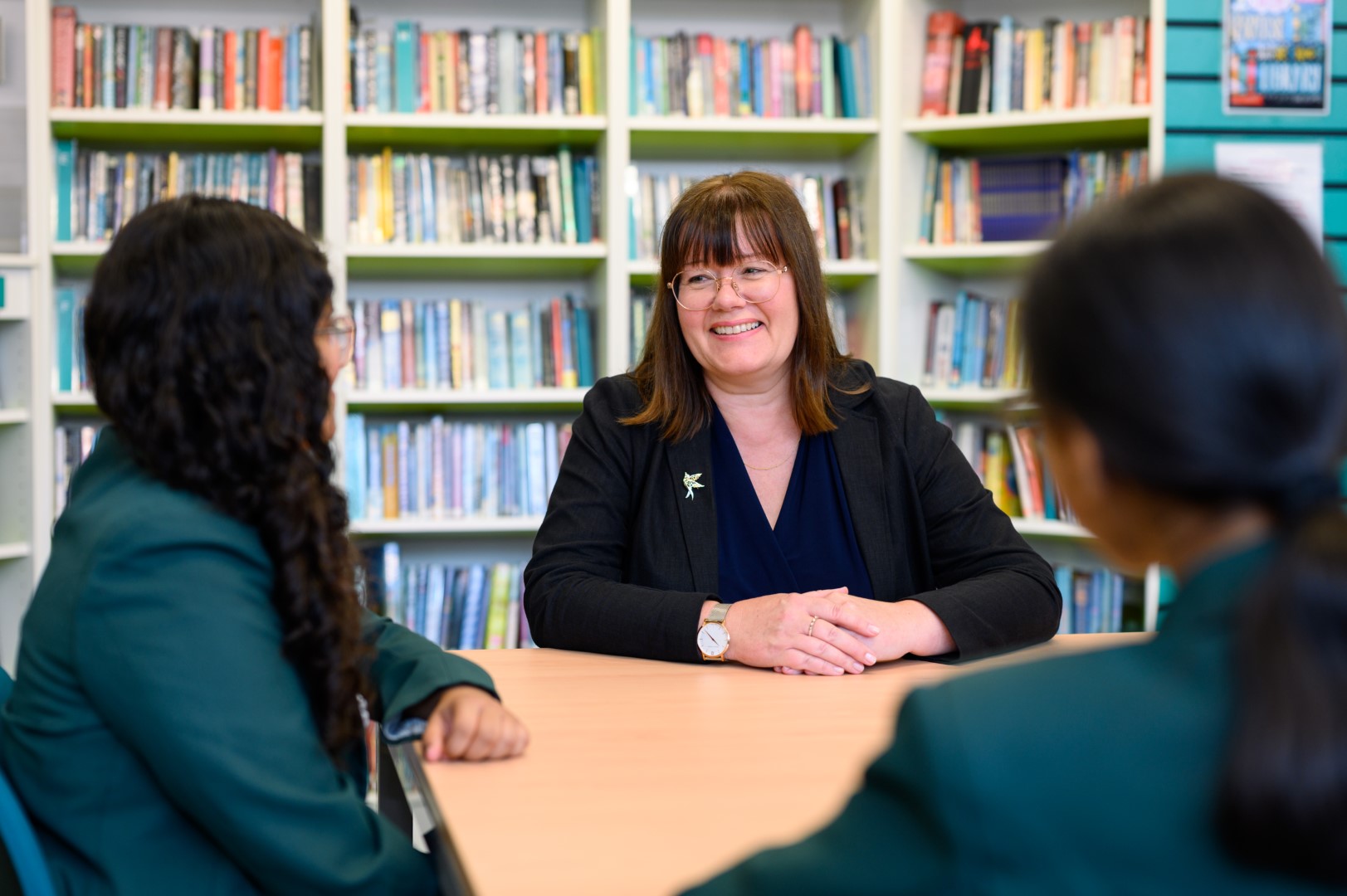
Welcome from the Headteacher
With over 100 years' experience in girls’ education, Enfield County School for Girls has a long-standing tradition of transforming the life chances of young women.
Our students’ academic progress consistently exceeds national averages, reflecting our unwavering commitment to excellence.
Our students achieve highly in all areas, supported by experienced staff and a happy and purposeful learning environment in which every individual is valued.
As a non-denominational all-girls’ school, we are proudly home to a vibrant, culturally diverse community, and I am privileged to be the Headteacher of our unique school.
Our thriving co-educational Sixth Form continues our journey of success; we warmly welcome external applicants to join our inclusive and ambitious community, alongside applications from our existing students.
Our school history timeline on our website homepage details over 100 years of history from our school archives which will give you a flavour of what we are about. We invite you to visit our wonderful school and see for yourself what we are able to offer.
Warm regards,
Ms J Gumbrell
LATEST NEWS FROM ECSfG
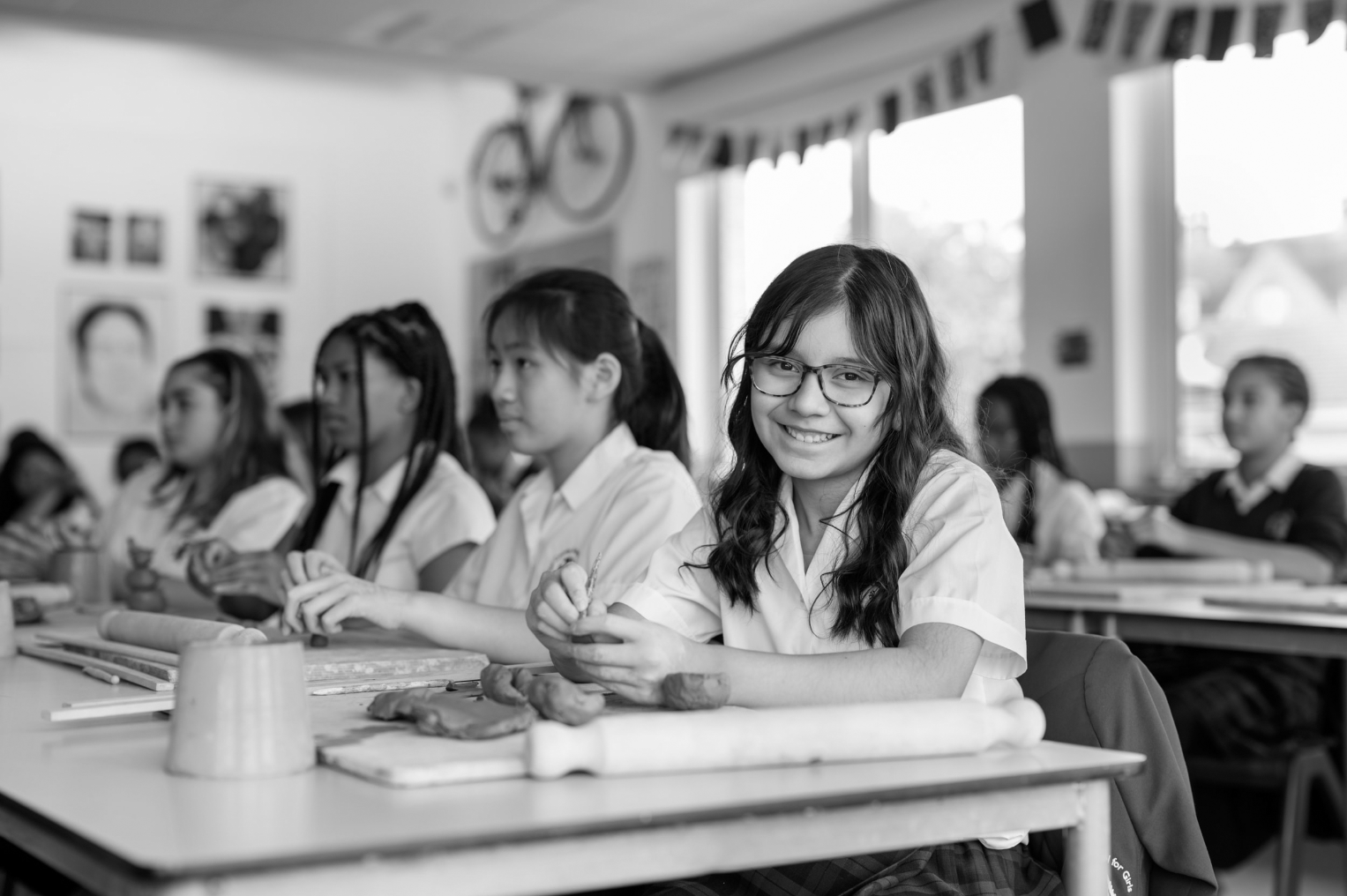
EVENTS CALENDAR
- 01Feb
LGBTQ+ Month
0:00am to 0:00am - 05Feb
Y11 Concern Evening
0:00am to 0:00am - 09Feb
Y12 PPEs #2
0:00am to 0:00am - 09Feb
Children’s Mental Health Week
0:00am to 0:00am - 11Feb
Y10 Next Steps Careers
0:00am to 0:15am - 16Feb
Half Term
8:30am to 3:30pm - 17Feb
Ramadan begins
0:00am to 0:00am - 23Feb
Y11 PPEs
0:00am to 0:00am - 23Feb
LGBTQ+ History Month
0:00am to 0:00am - 26Feb
Y9 Parents' Evening - Online
0:00am to 0:00am - 02Mar
National Careers Week
0:00am to 0:00am - 04Mar
Full Governing Body Meeting
All Day - 05Mar
World Book Day
8:30am to 3:15pm - 08Mar
International Women's Day
8:30am to 3:15pm - 09Mar
British Science Week
8:30am to 3:15pm - 18Mar
Ramadan ends
0:00am to 0:00am
The History of ECSfG
Here's our Story
Pre-1900
1895
1909
1909
1909
1909
1914
1917
1919
1926
1931
1937
1939
c.1940
c.1940
1941
1945
1948
1948
1949
1950
1950
1951
1953
1954
1962
1963
1963
1966
2008
-
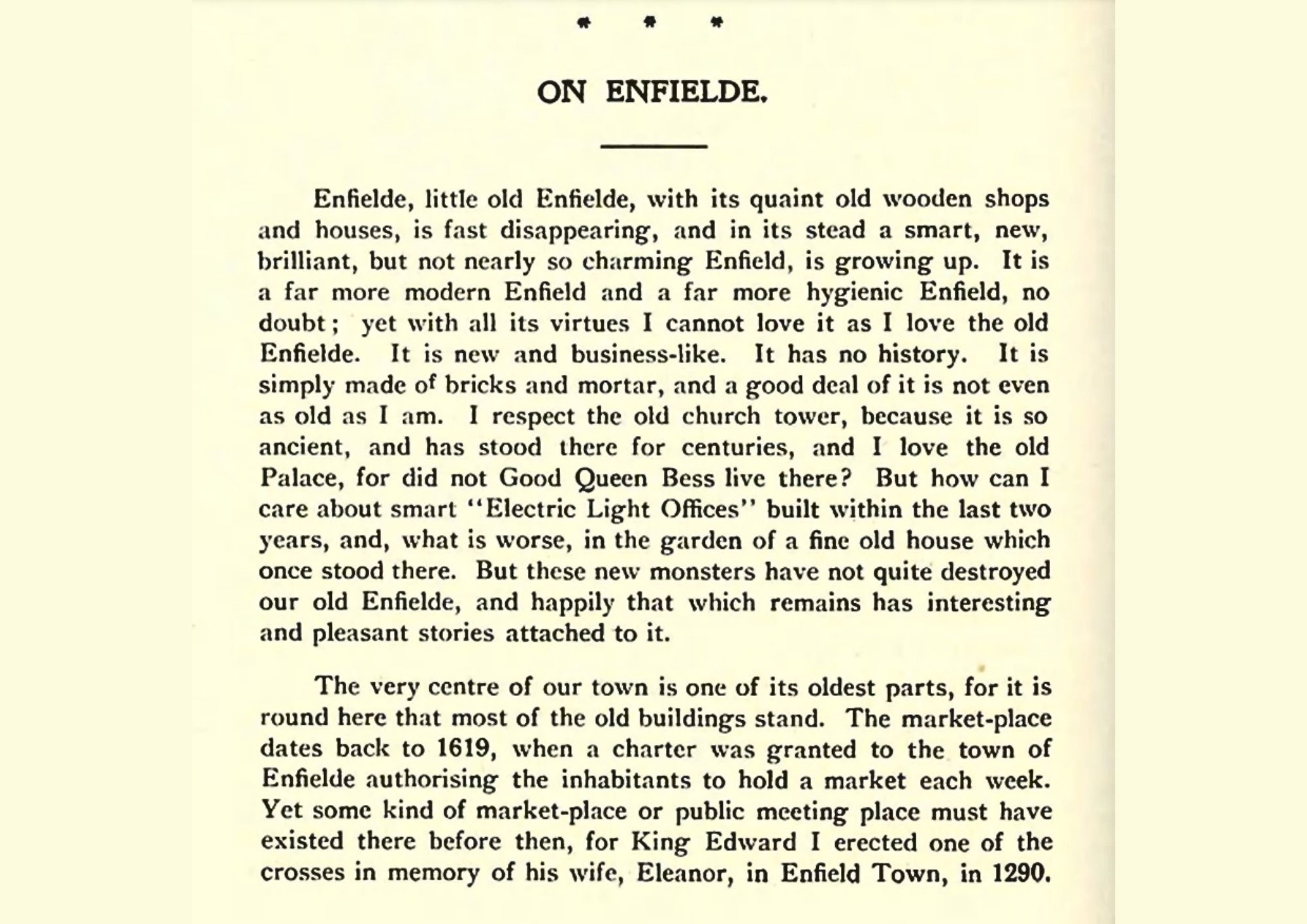
Historical Enfield
In the 1914 edition of ECS School Magazine student Hilda Obott writes a historical account of 'Old Enfielde'
'Old Enfielde' cont. -
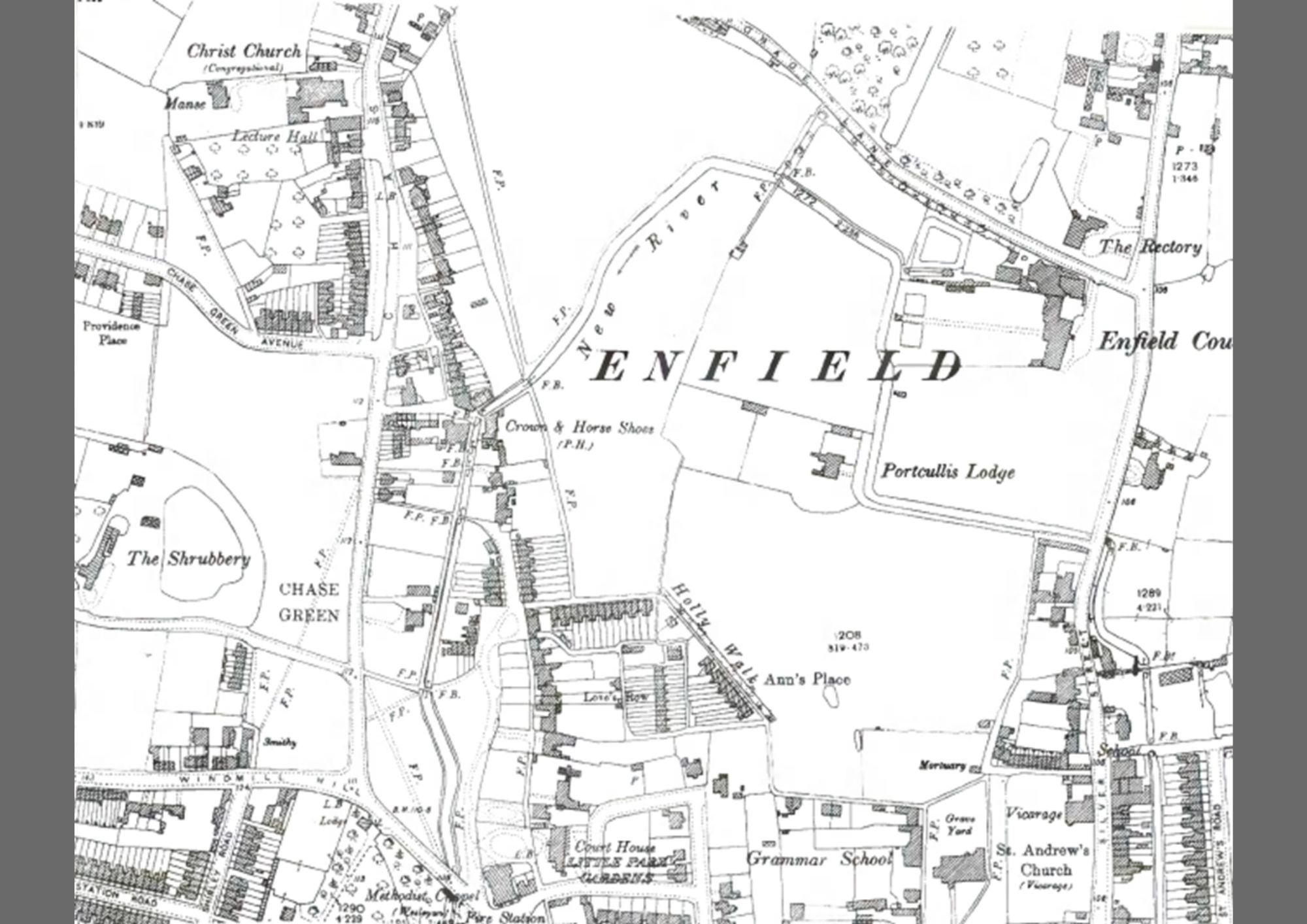
1895 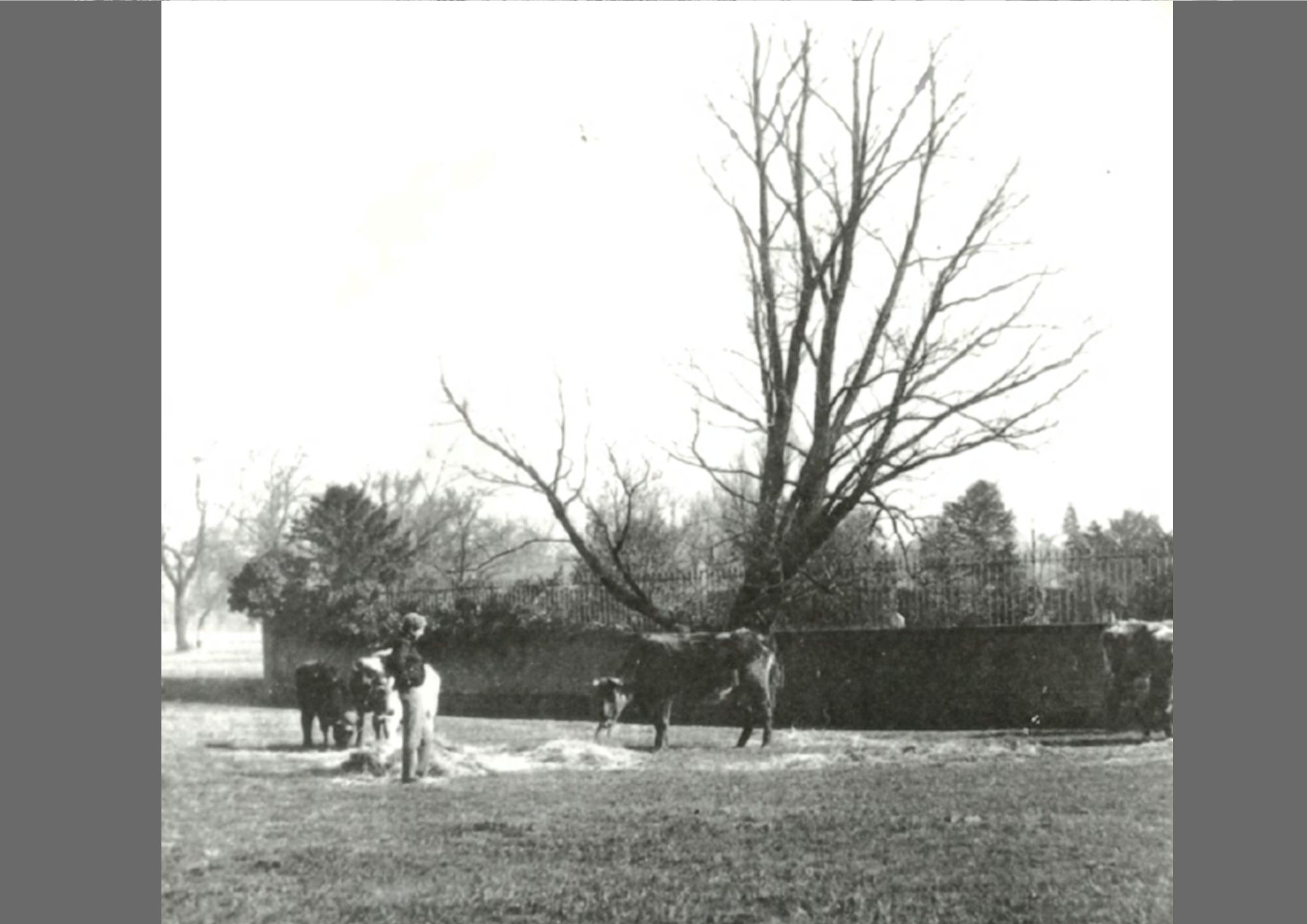
Pre-1900 -
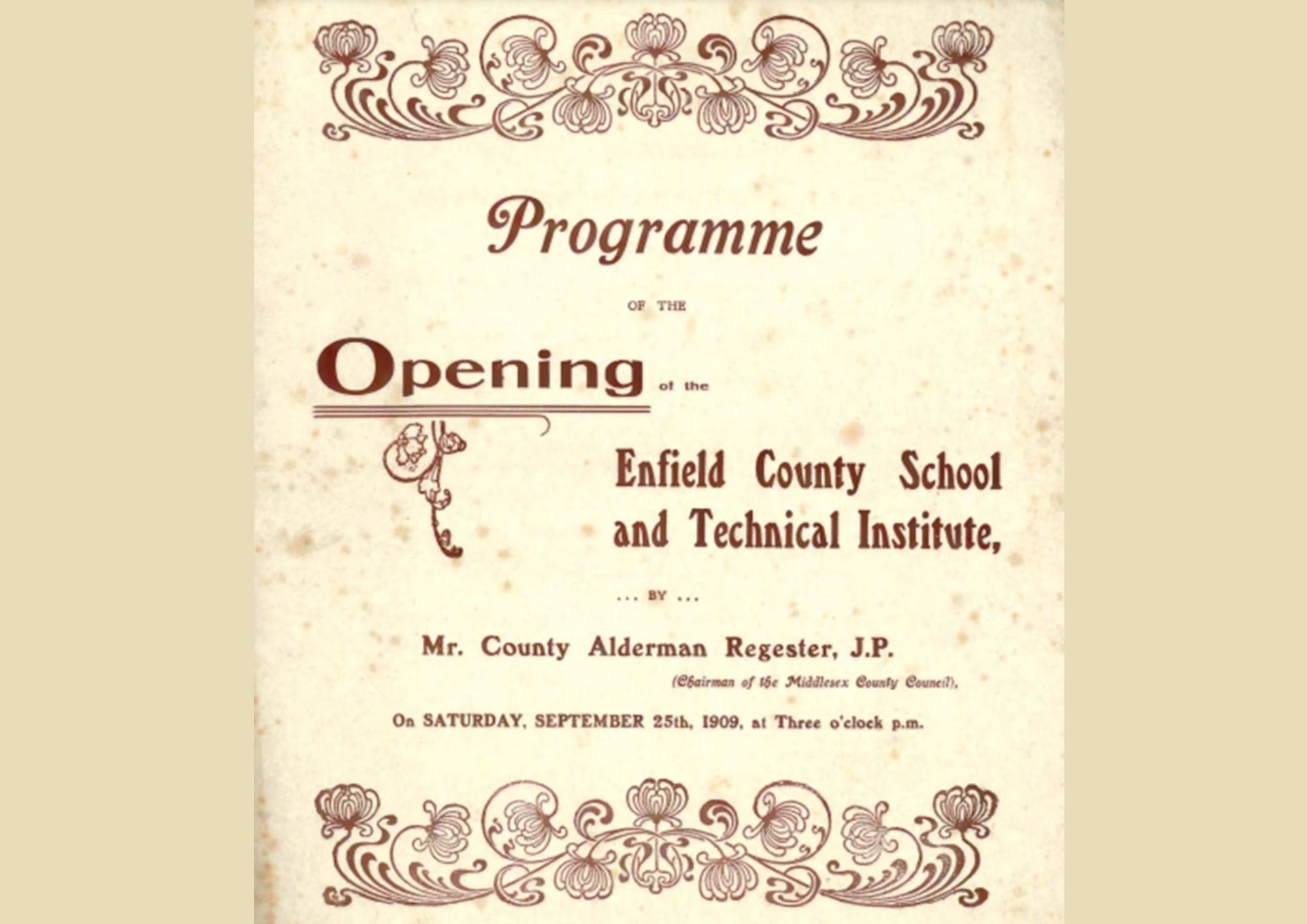
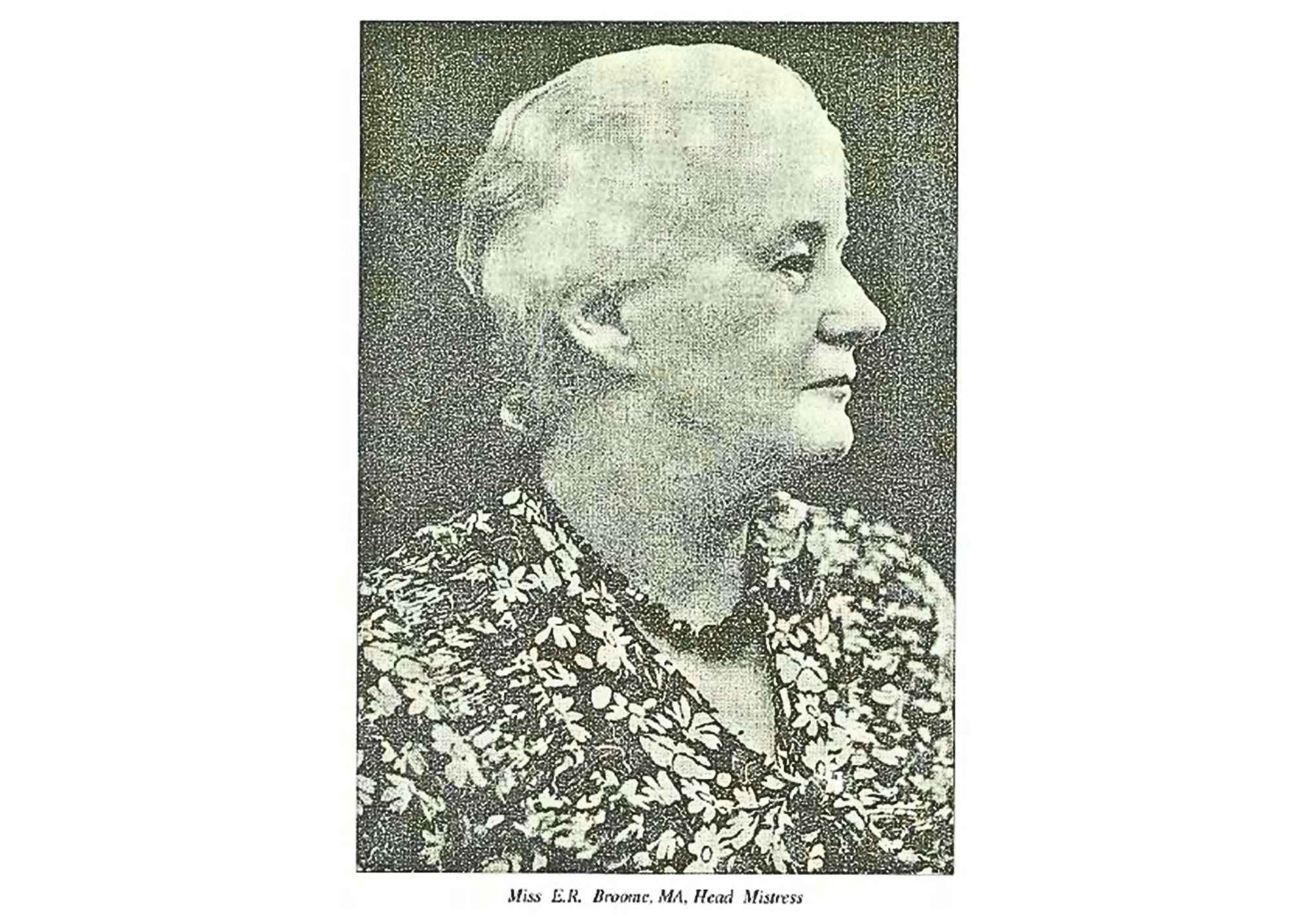
1909
Ms Emily Rose Broome is the first Headmistress when The Enfield County School opens on 25 September 1909, a site of five acres designed to accommodate 250 girls. Initially welcoming 111 pupils, by the end of 1910 the school had grown to 153 students.
1909 Preliminary Prospectus
Lessons originally comprised of, "Holy Scripture, Reading, Writing, English Literature, Composition and Grammar, History, Geography, French, German, Latin, Mathematics, Botany, Physics, Nature Study, Art, Needlework, Singing, and Physical Exercises, with such other subjects as may be arranged from time to time." -
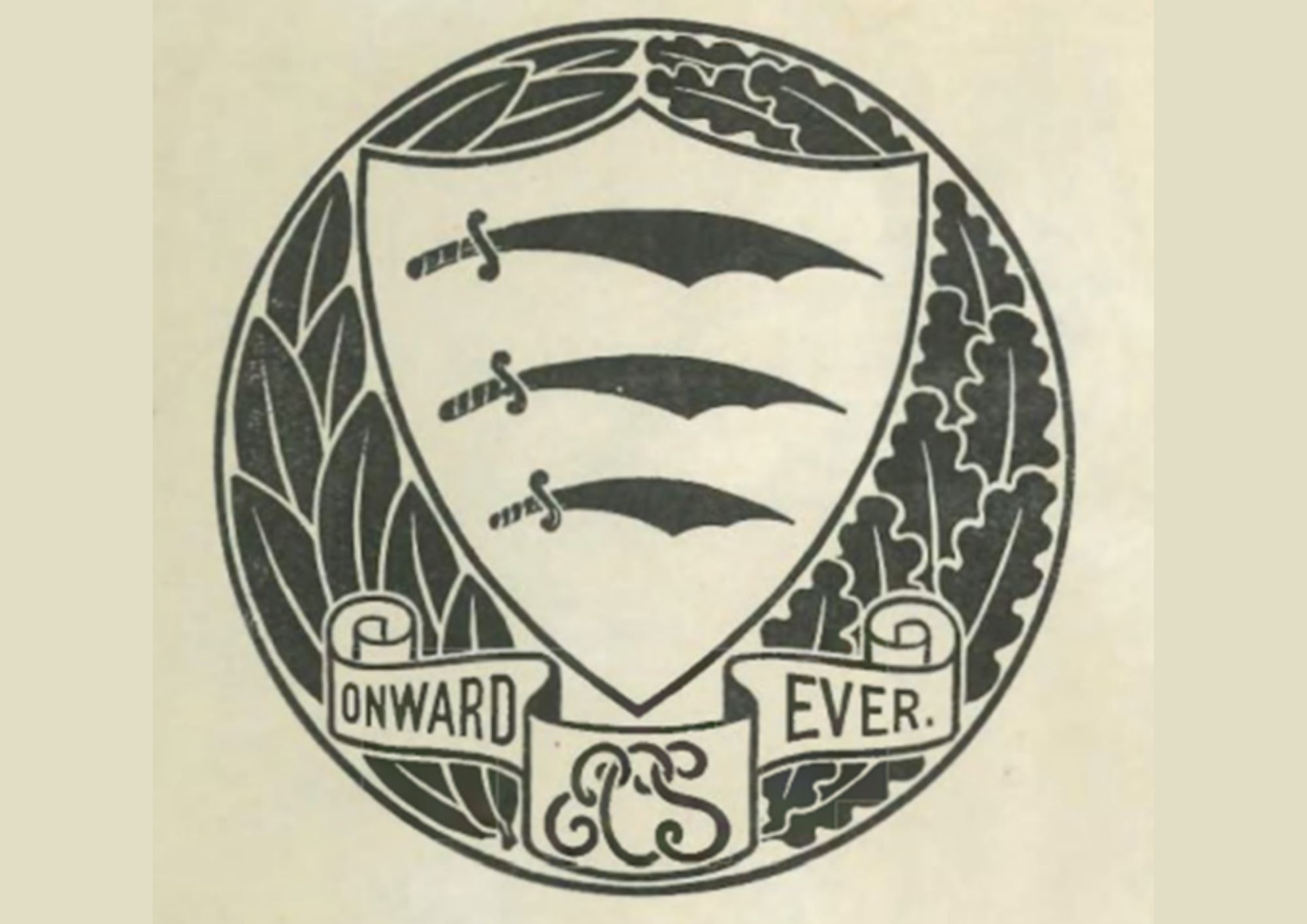
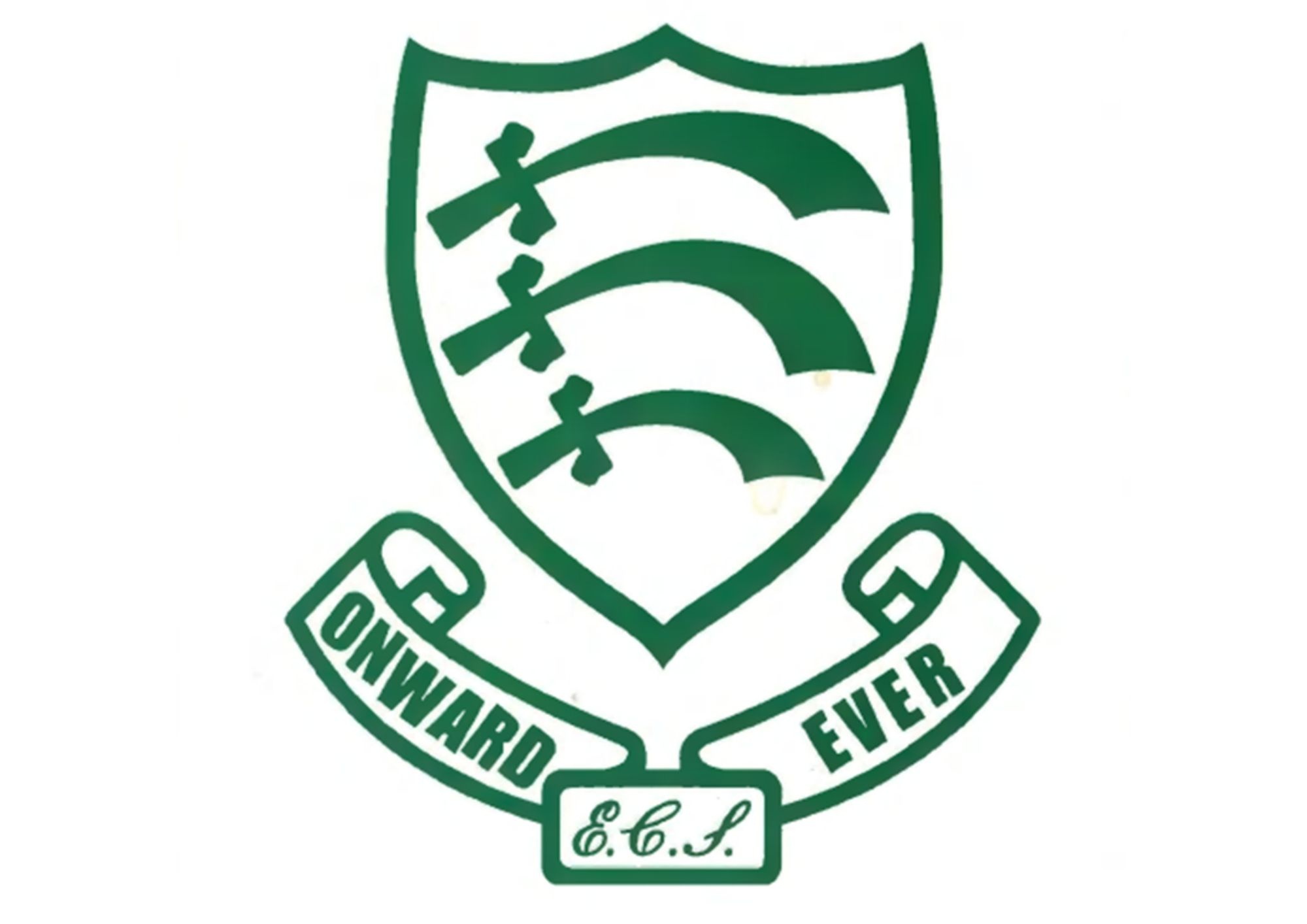
Onward Ever
From 1909 Enfield County School use the Middlesex County badge featuring three 'Gurka Knives' in a shield garlanded with laurel leaves. Over time, the ECS school logo was modified to remove the laurel leaves but retain its essential design.
In Sir Clifford Radcliffe's book Middlesex, the county arms are described as, "Three Seaxes (short notched swords) fesswise (horizontal) in pale (one above the other). Radcliffe writes, "The knives or seaxes, as they are usually termed, are similar to the duellist knife of the gladiators of Ancient Rome. A knife of the same type was used by the Saxons as a weapon of defence."
Middlesex, Sir Clifford Radcliffe, new edition, Evans Brothers Ltd., 1950 -
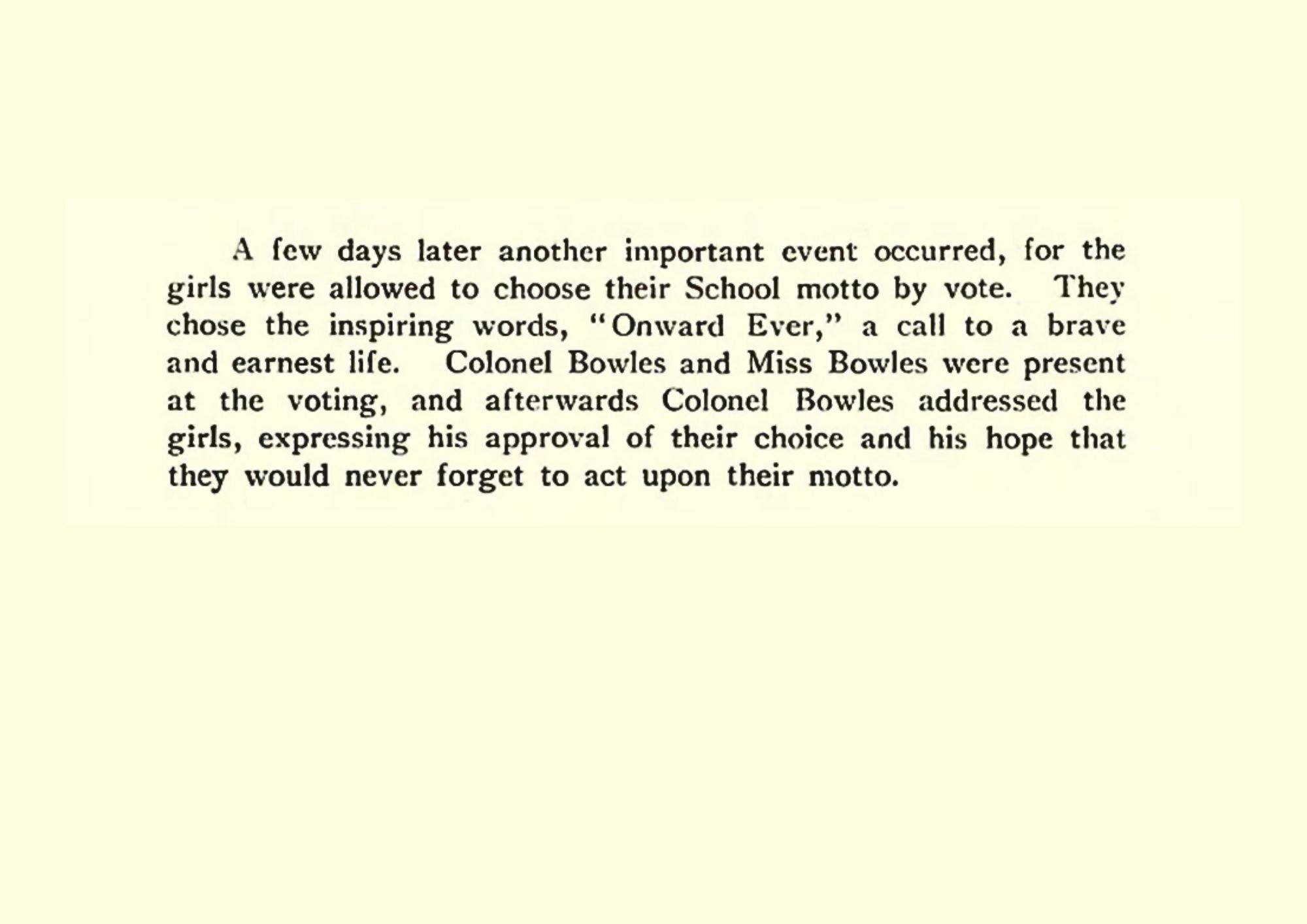
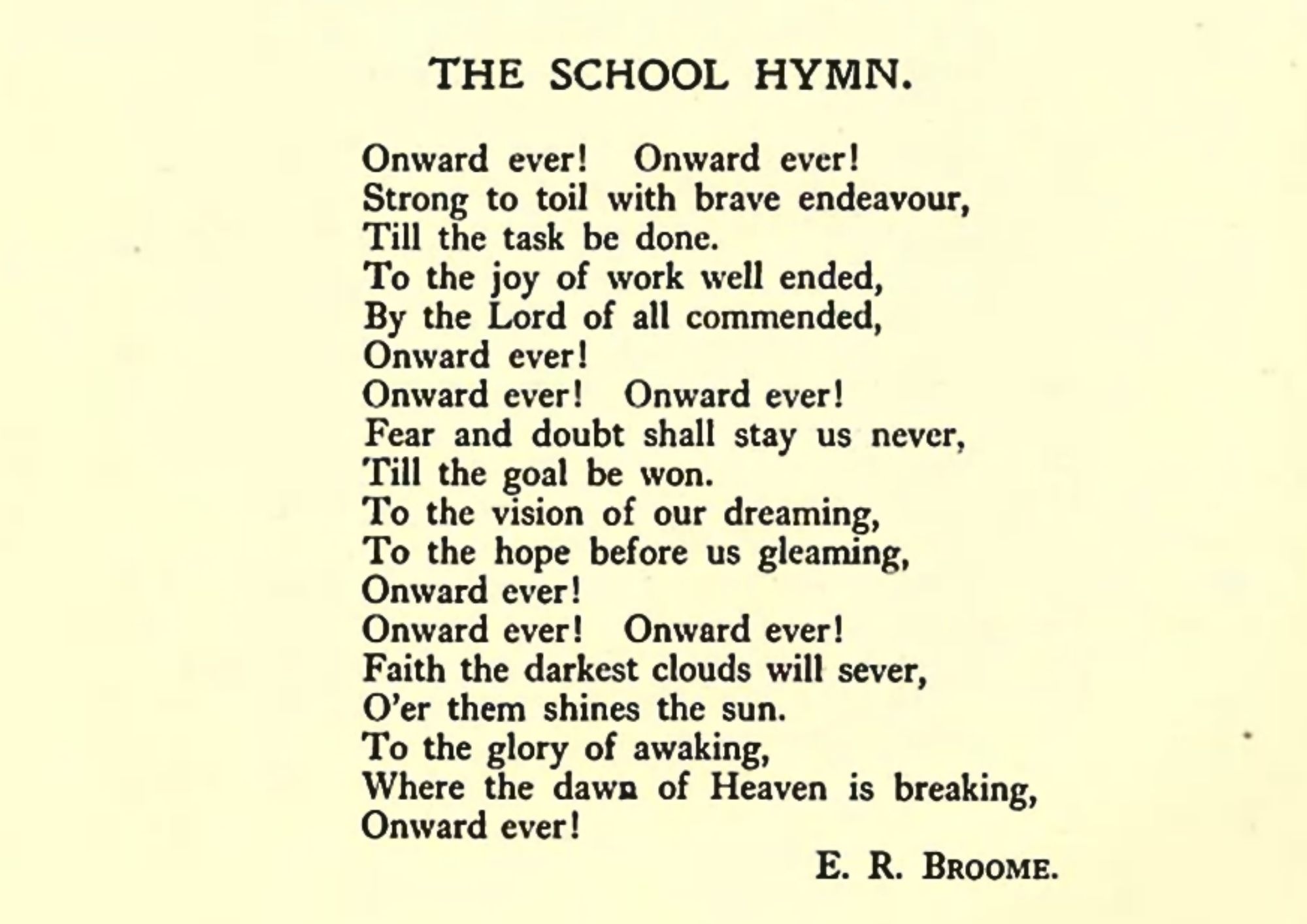
Onward Ever
Written by Ms E. R. Broome, ECS first Headmistress, the school motto was later used as inspiration for Daisy Wright's poem, 'Onward Ever'.
Onward Ever, poem by Daisy Wright -
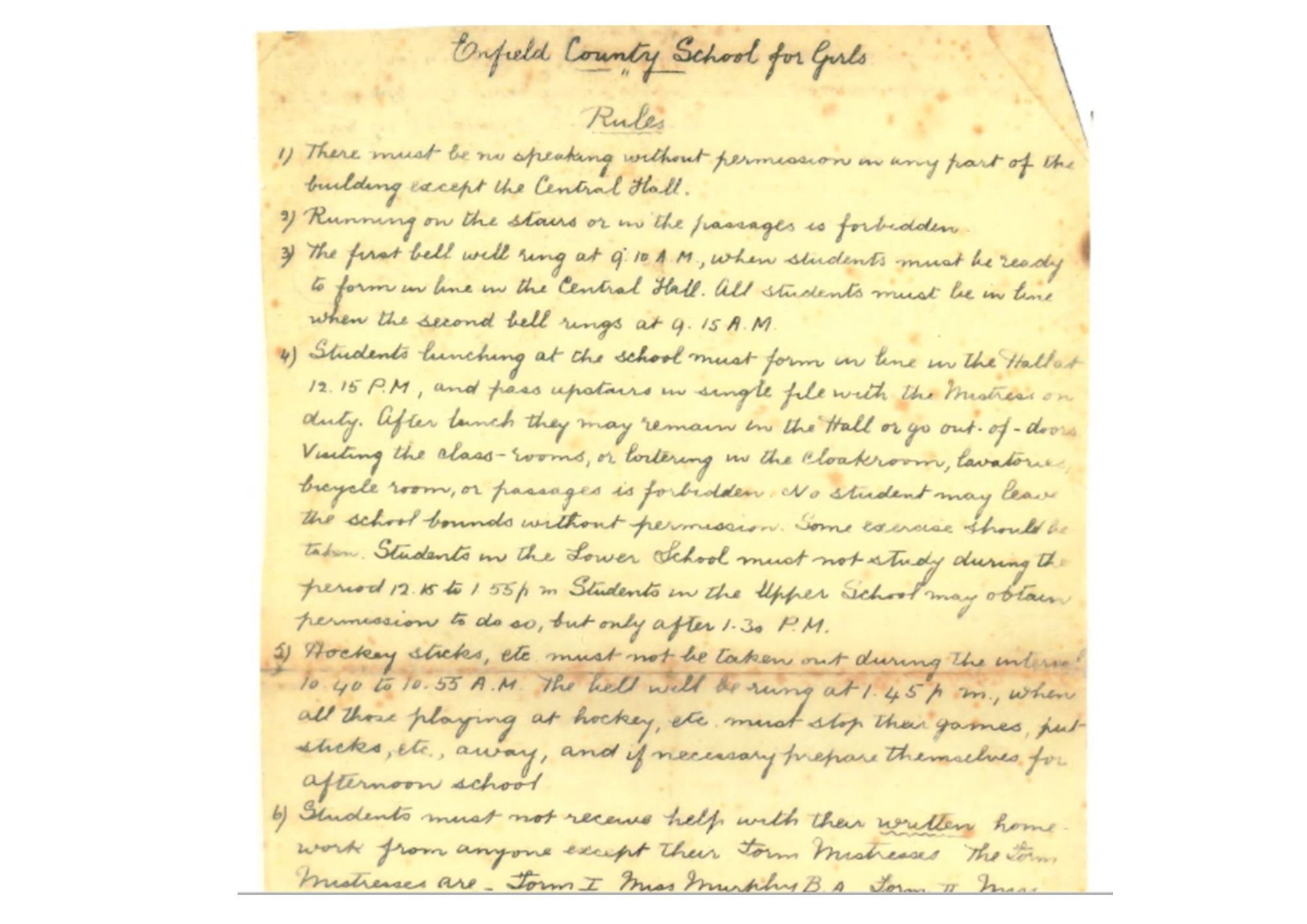
1909 
Present Rules & Values
10 November 1909: A note to parents. Headteacher Ms Broome writes to parents. School rules are also distributed to all form rooms.
ECS 1909 Rules in Full -
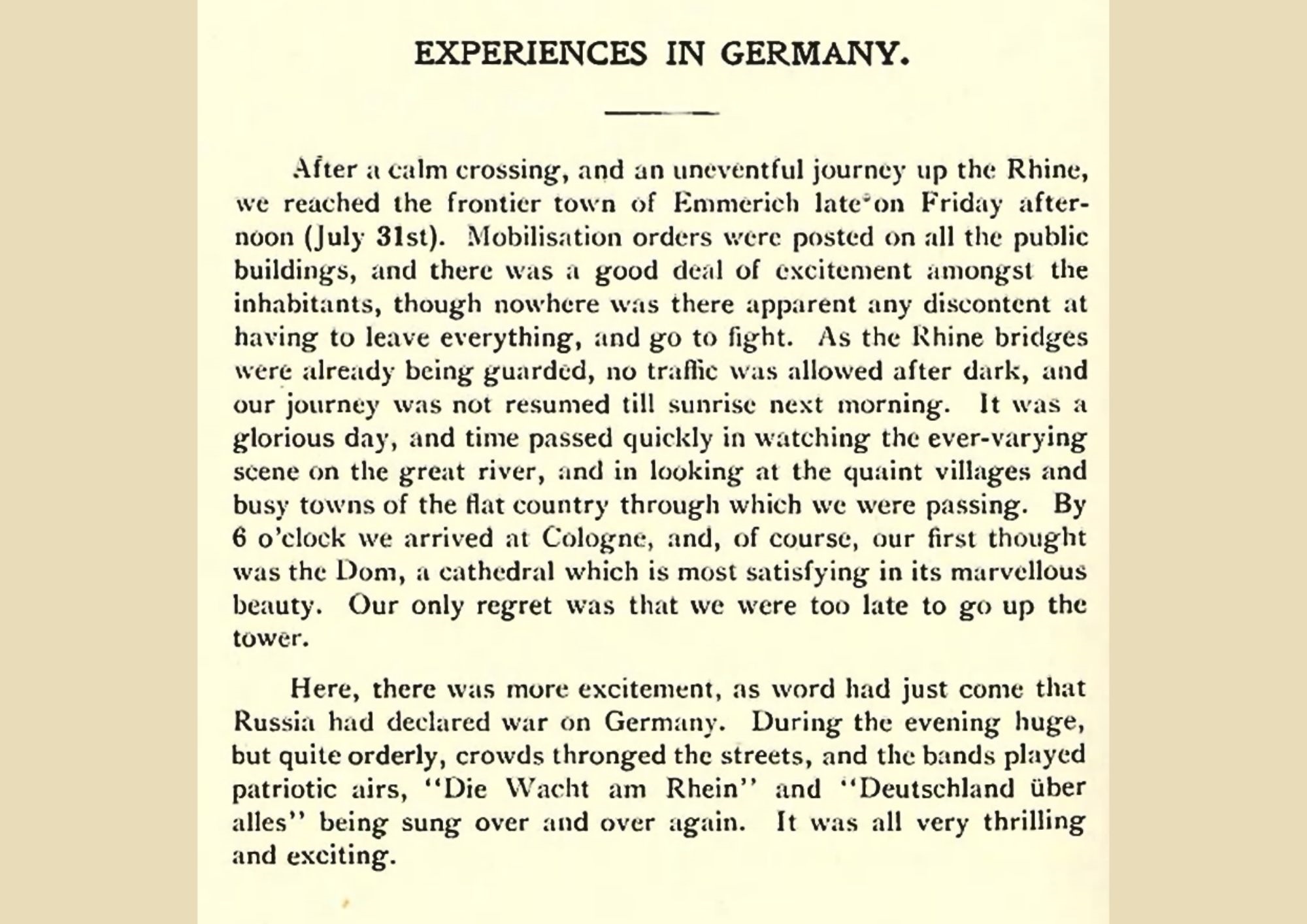
WWI
Writing in ECS Magazine, 1914, Nellie Biggs describes being on a school trip in Germany when Russia declares war on Germany.
'Experiences in Germany' ECS Magazine (1914 ed.)
"We were allowed to cross the bridge two and two, escorted by a file of soldiers on each side, with jeering crowds looking on, and taken to the Criminal Police Office. Here we were told we might not leave Cologne until the end of the war, and that if we attempted to do so we would immediately be put in a fortress." -
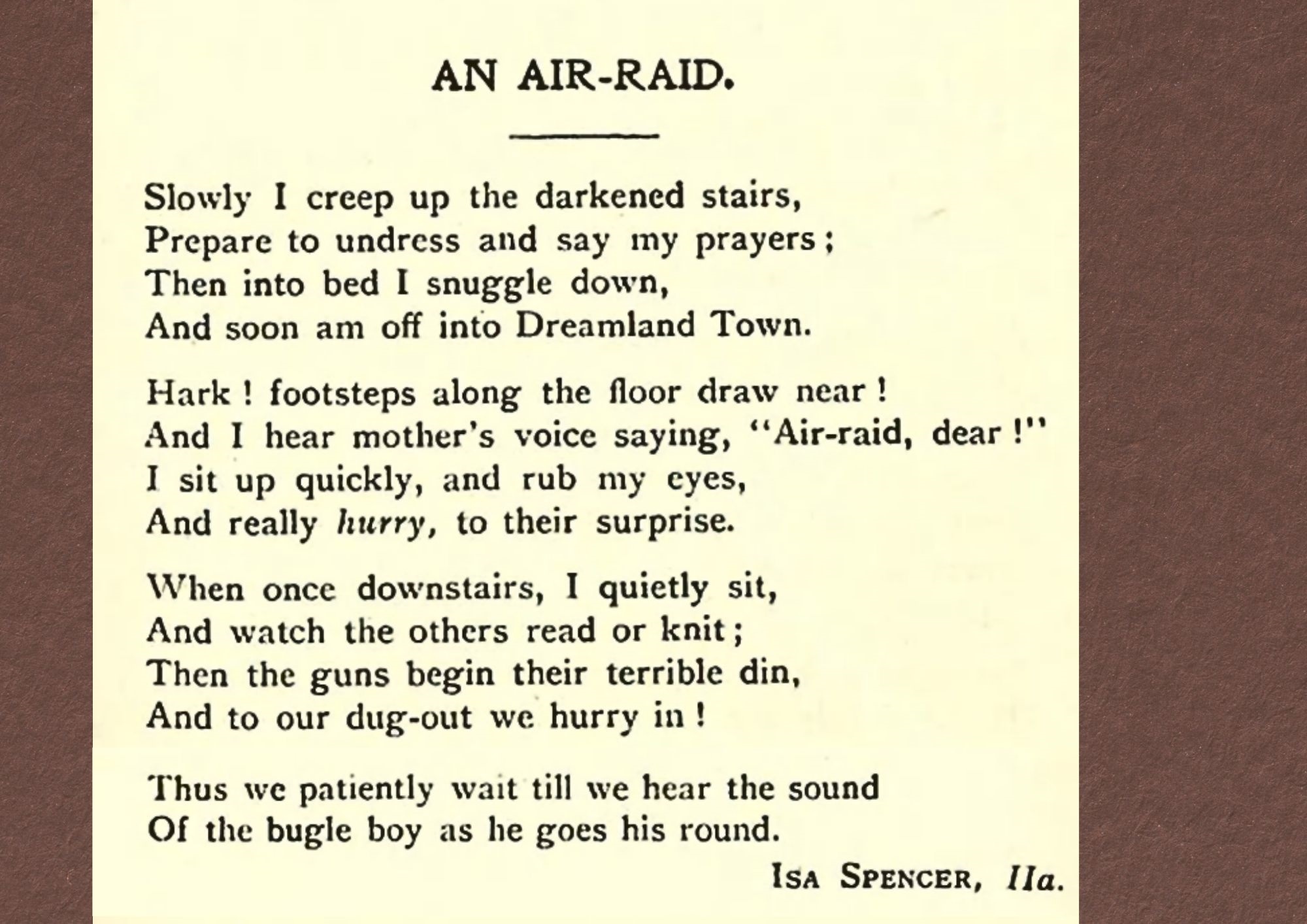
1917 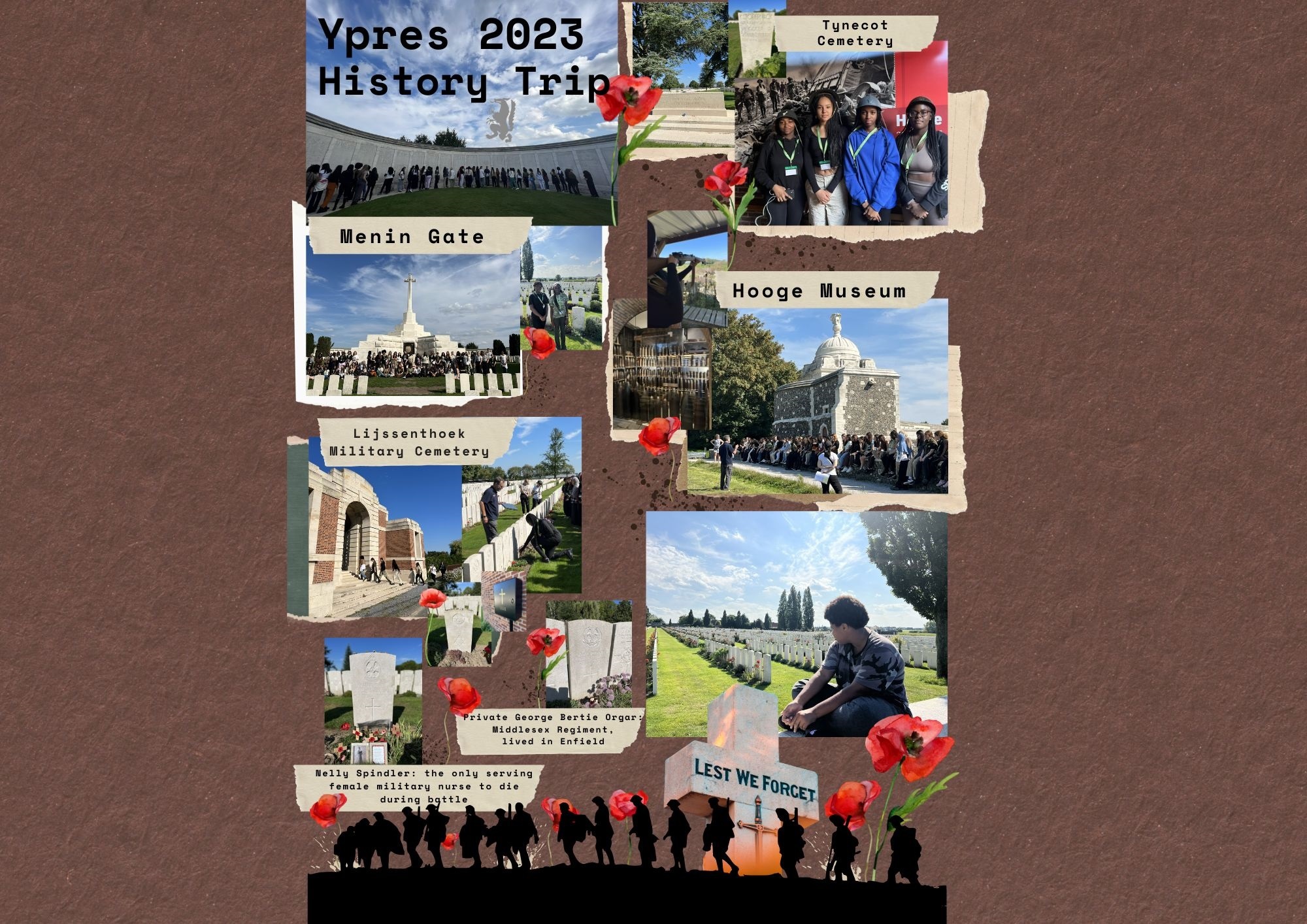
2023 -
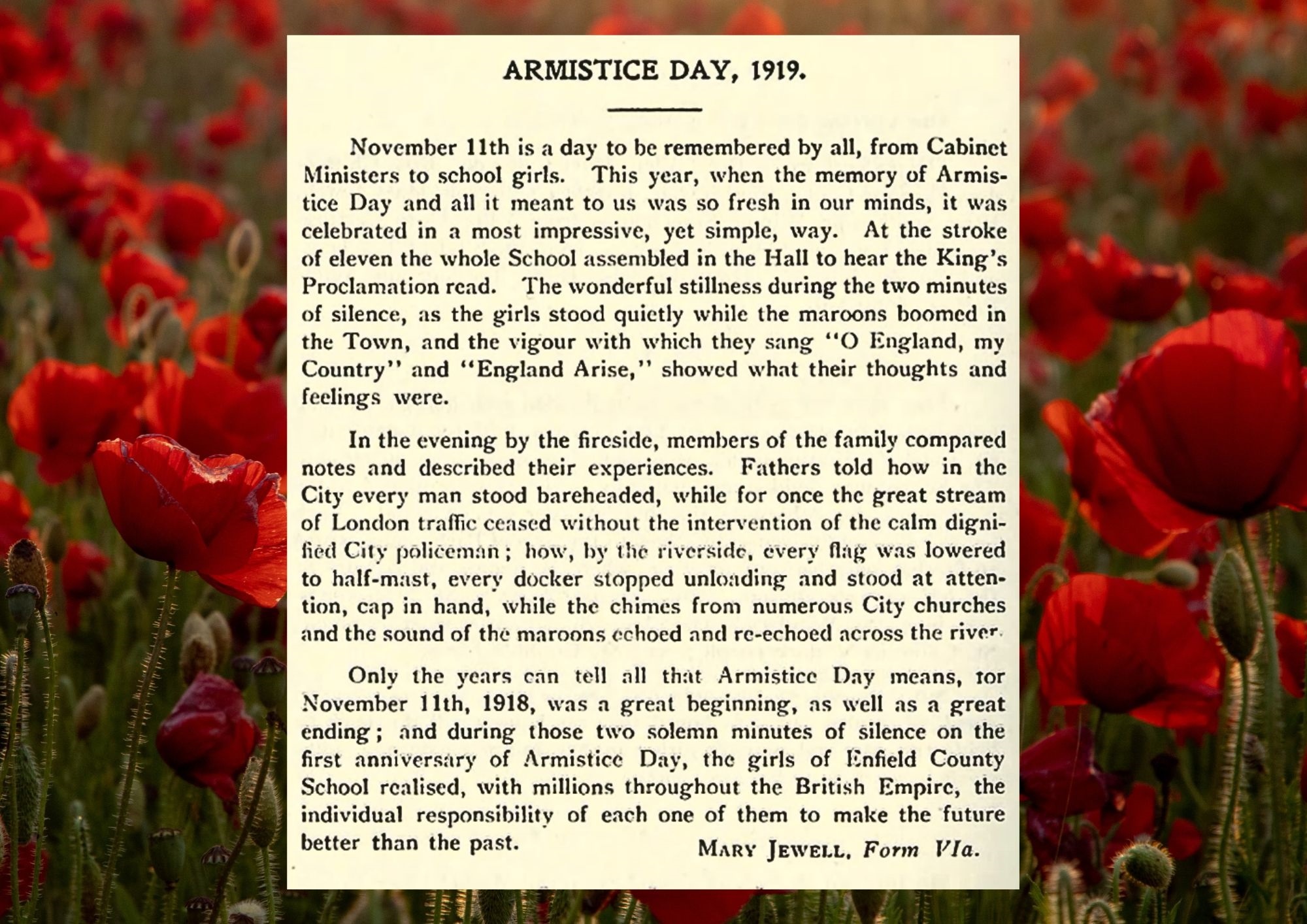
-
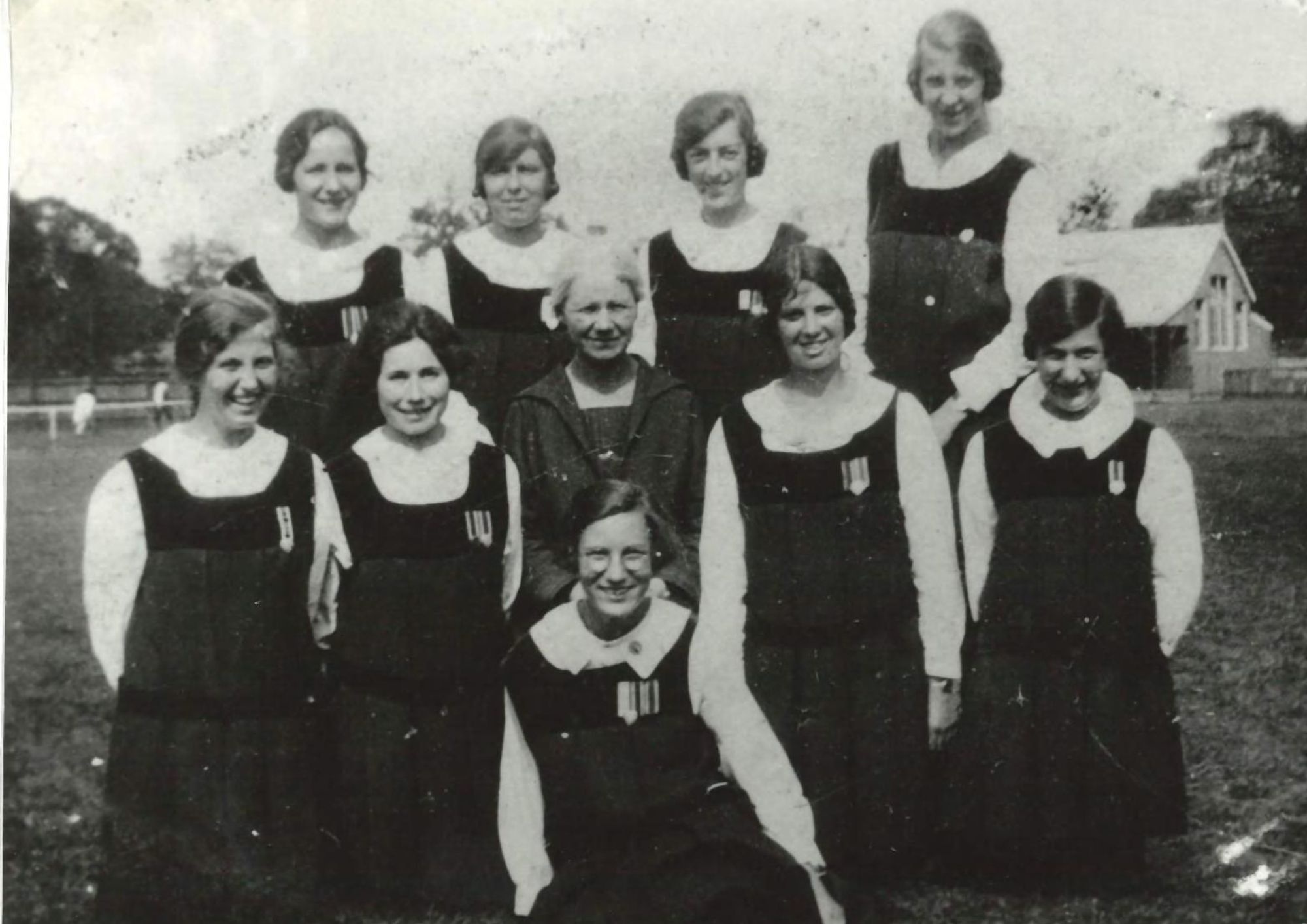
1926 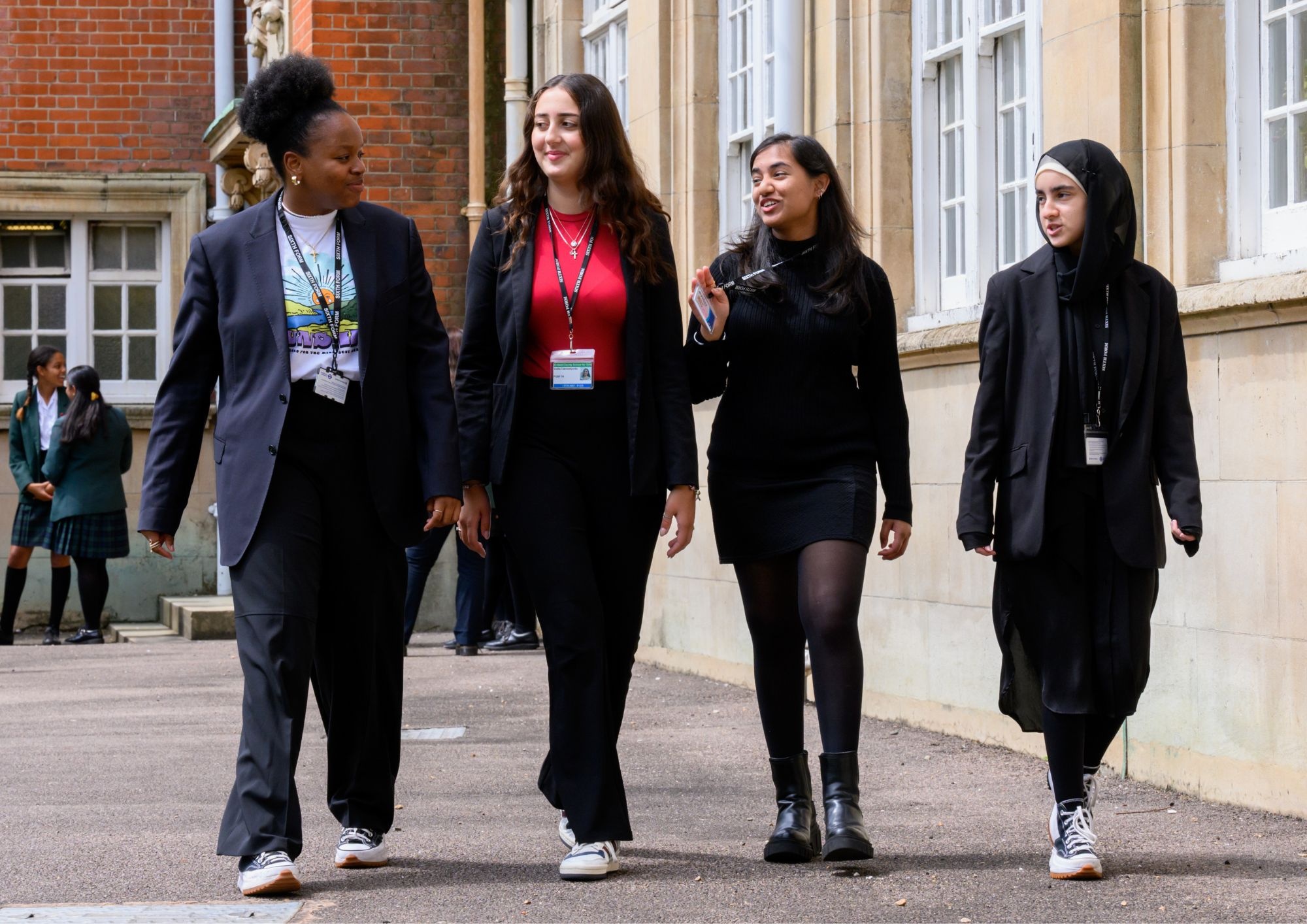
Present -
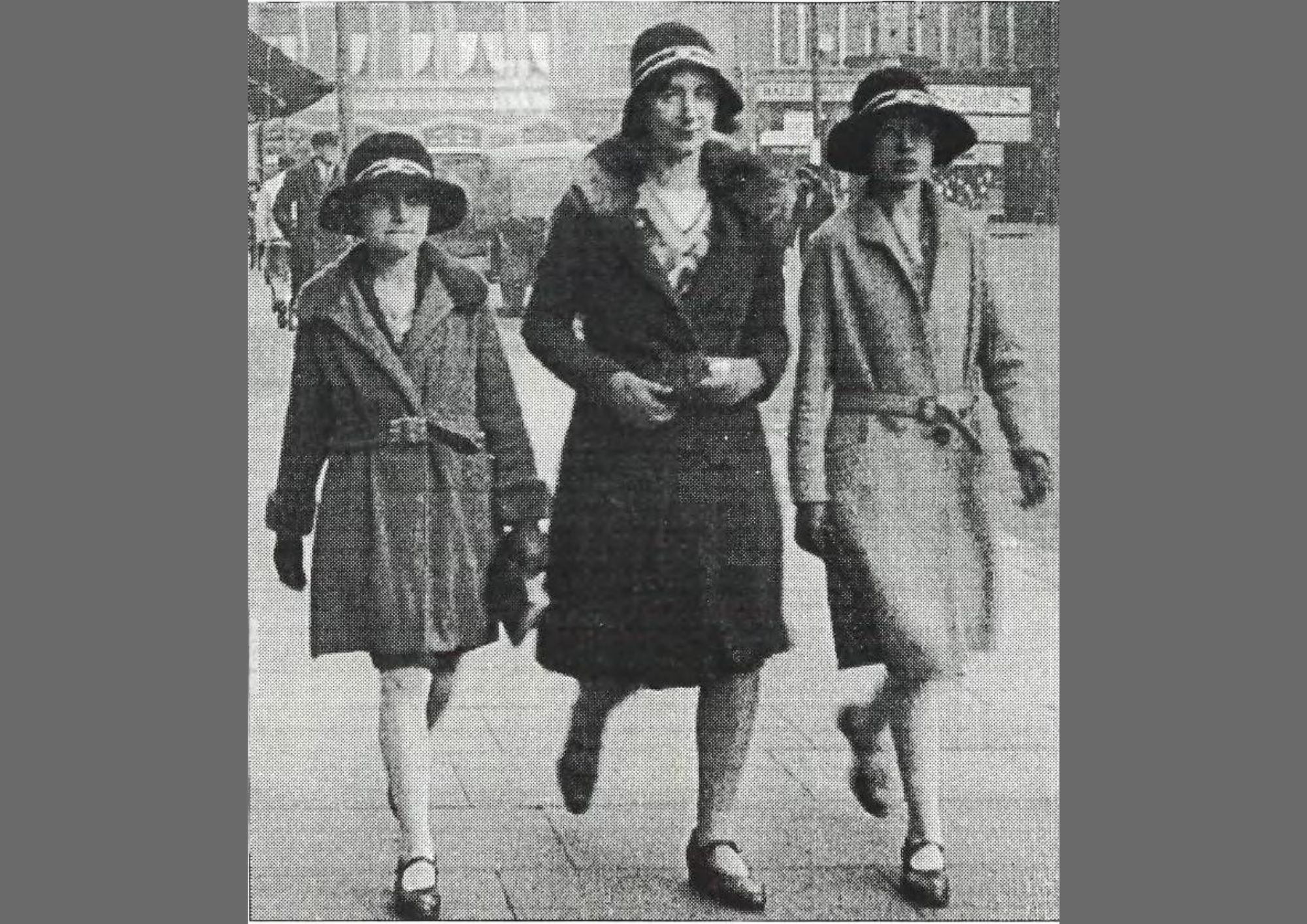
1931 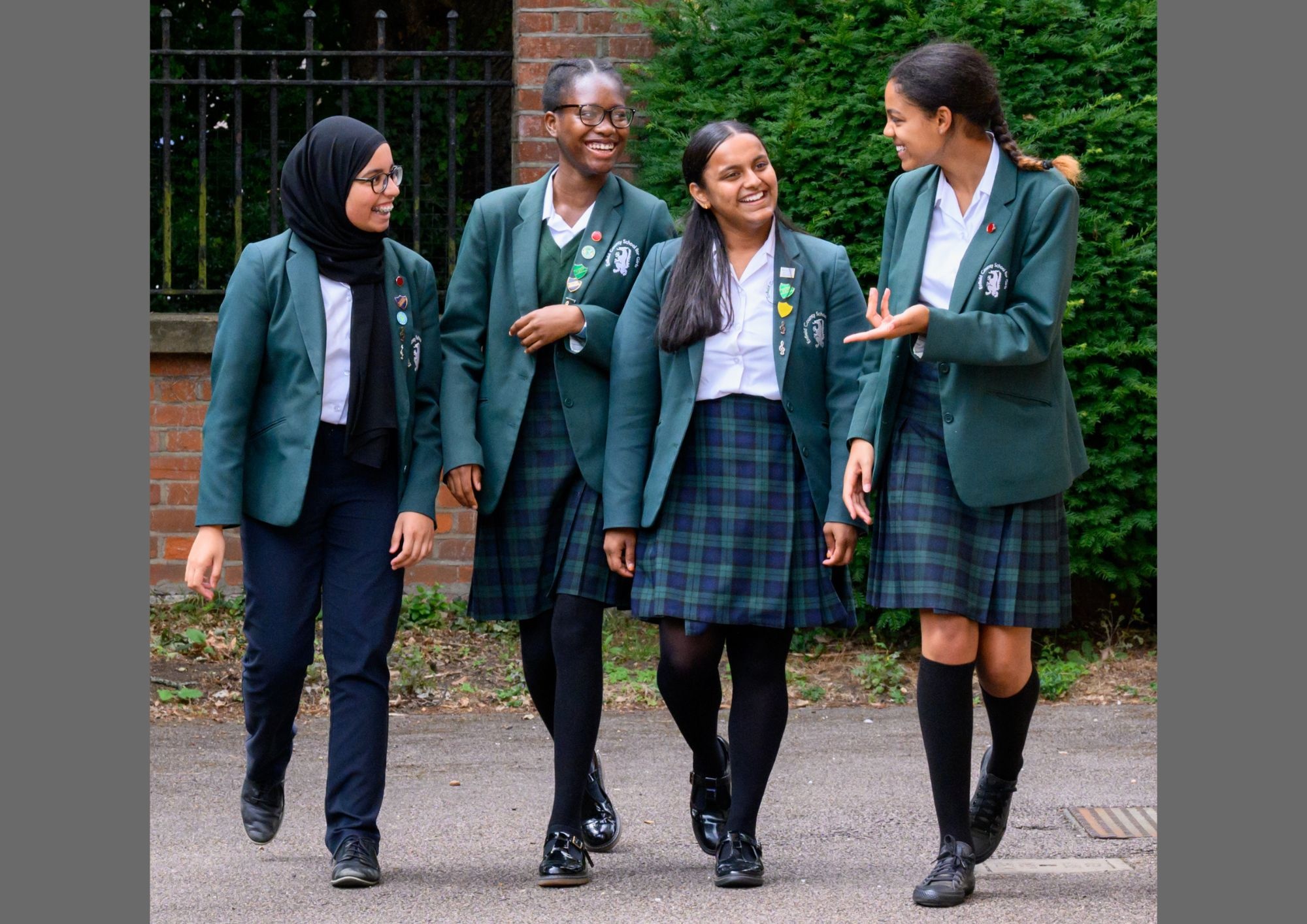
Present 1931
1930s fashion reflected in ECS students' belted coats, gloves and buckle shoes
A satirical account of 1930s fashion: ECS School Magazine (1931 ed.) -
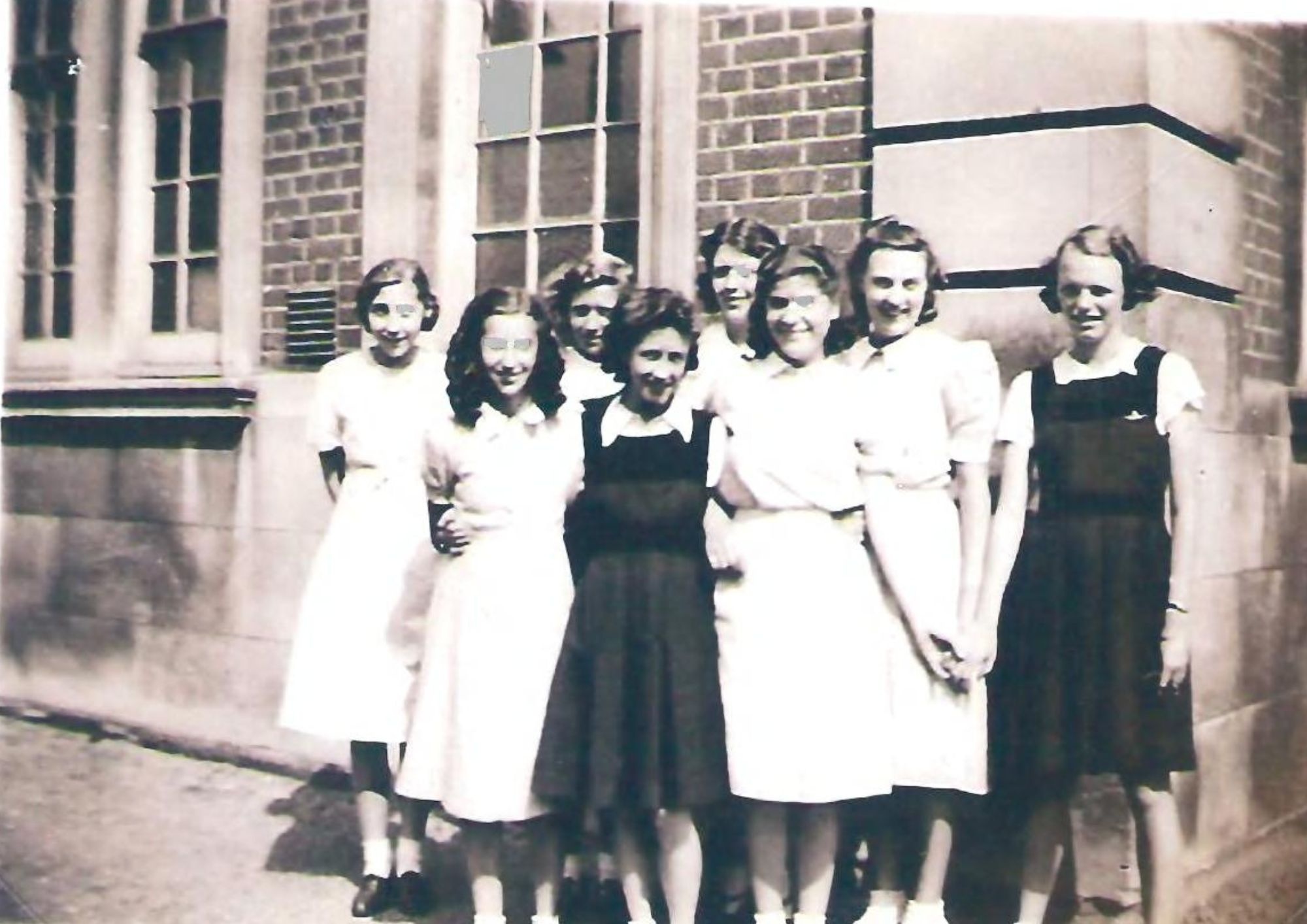
1937 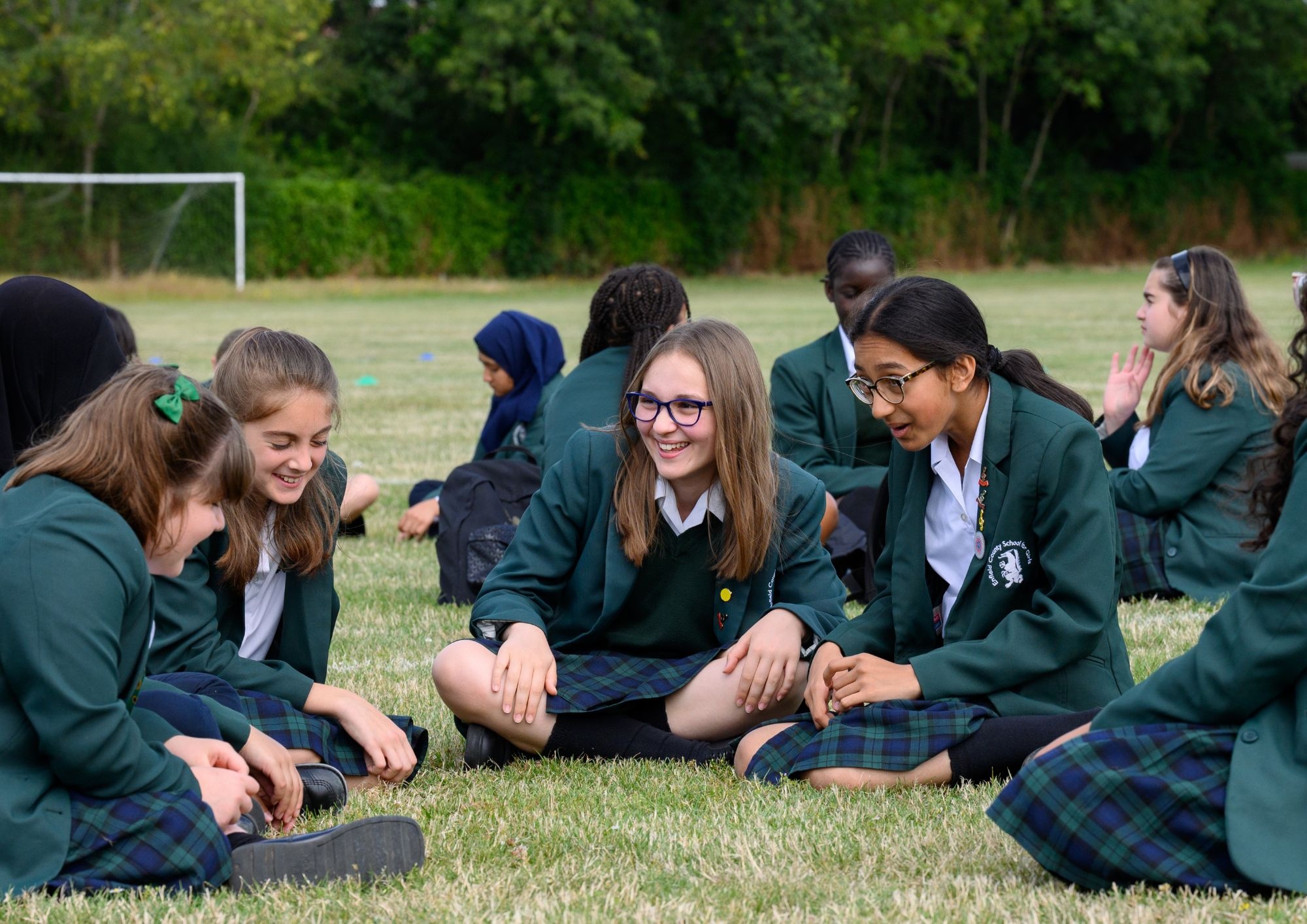
Present -
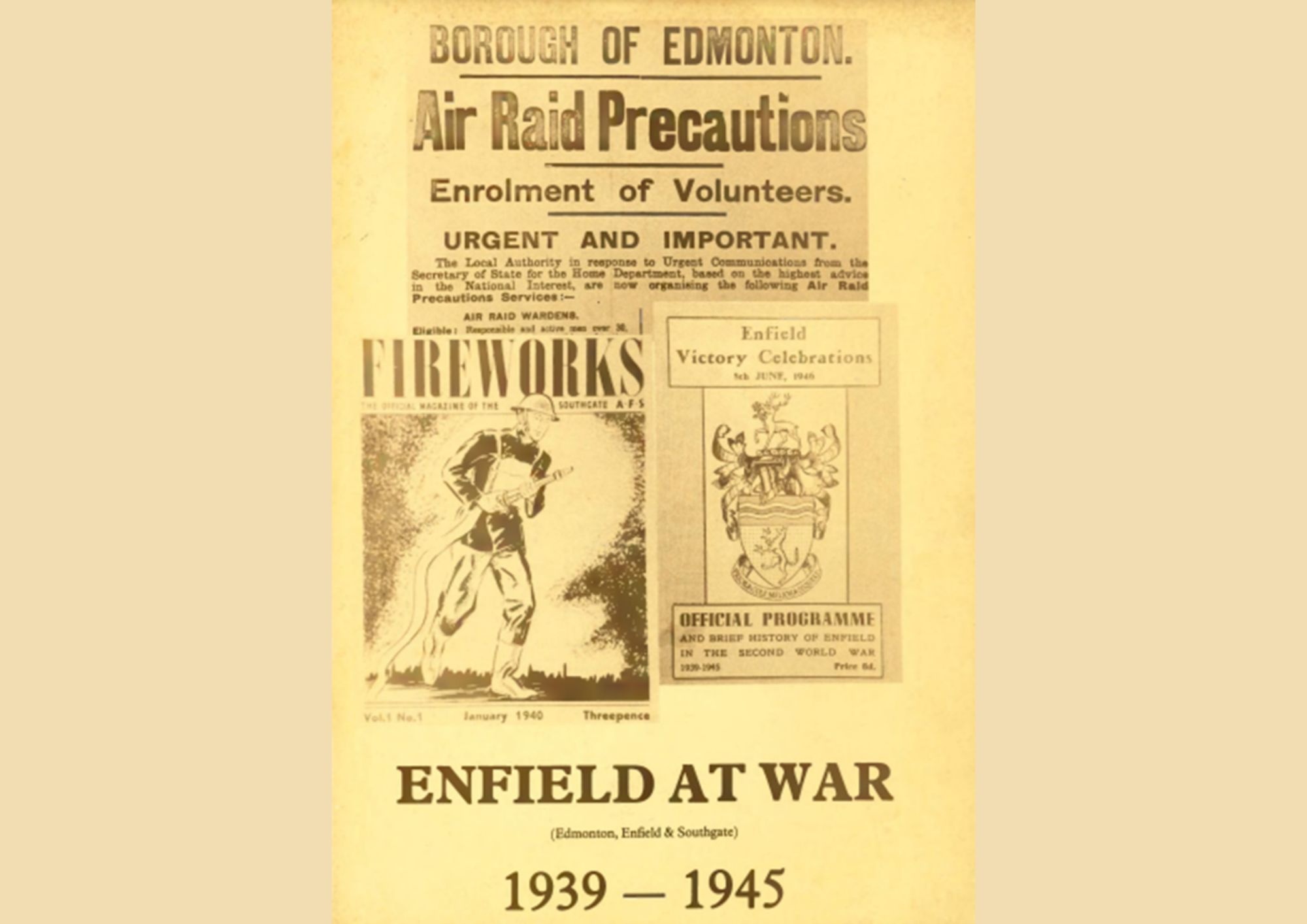
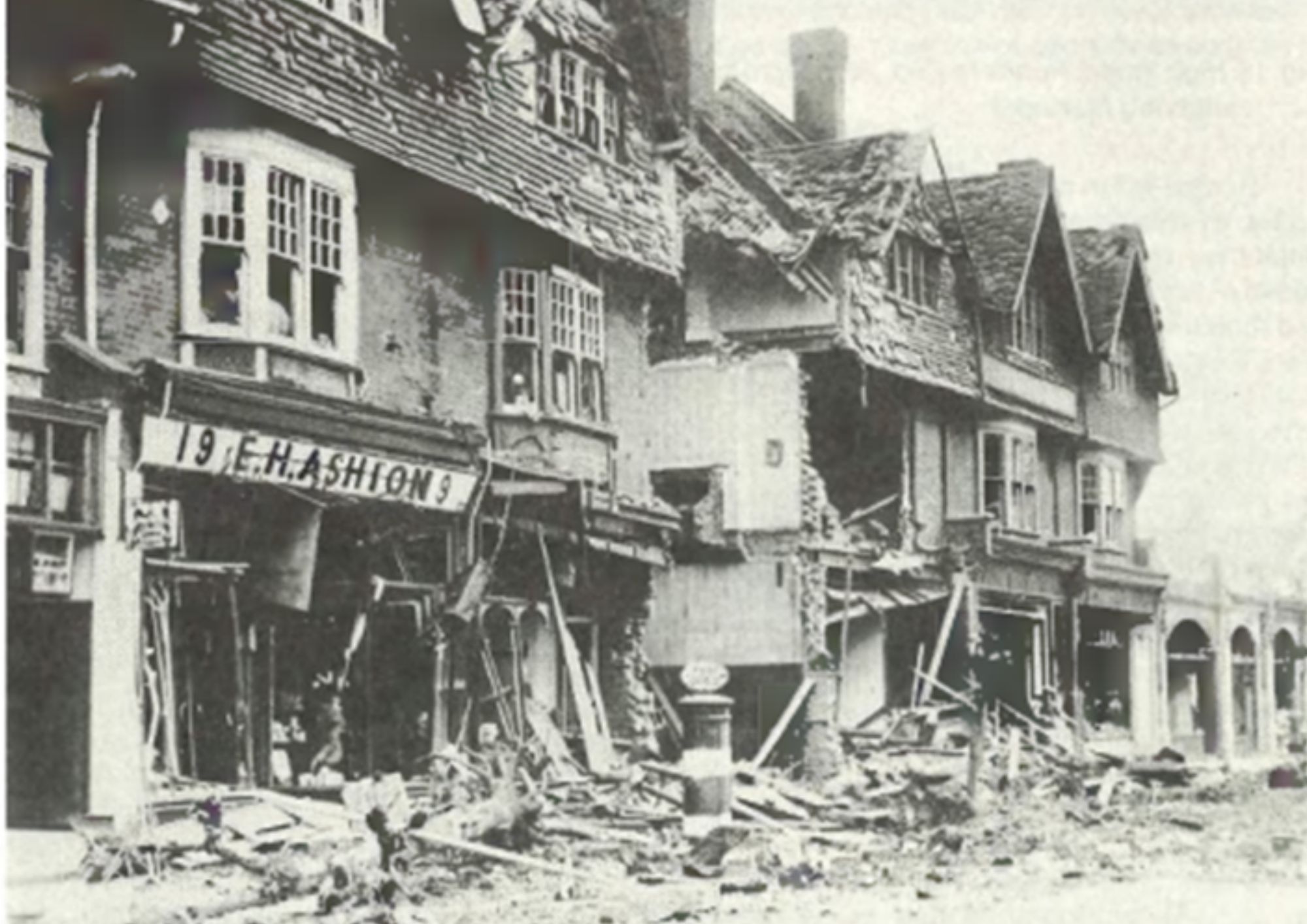
-
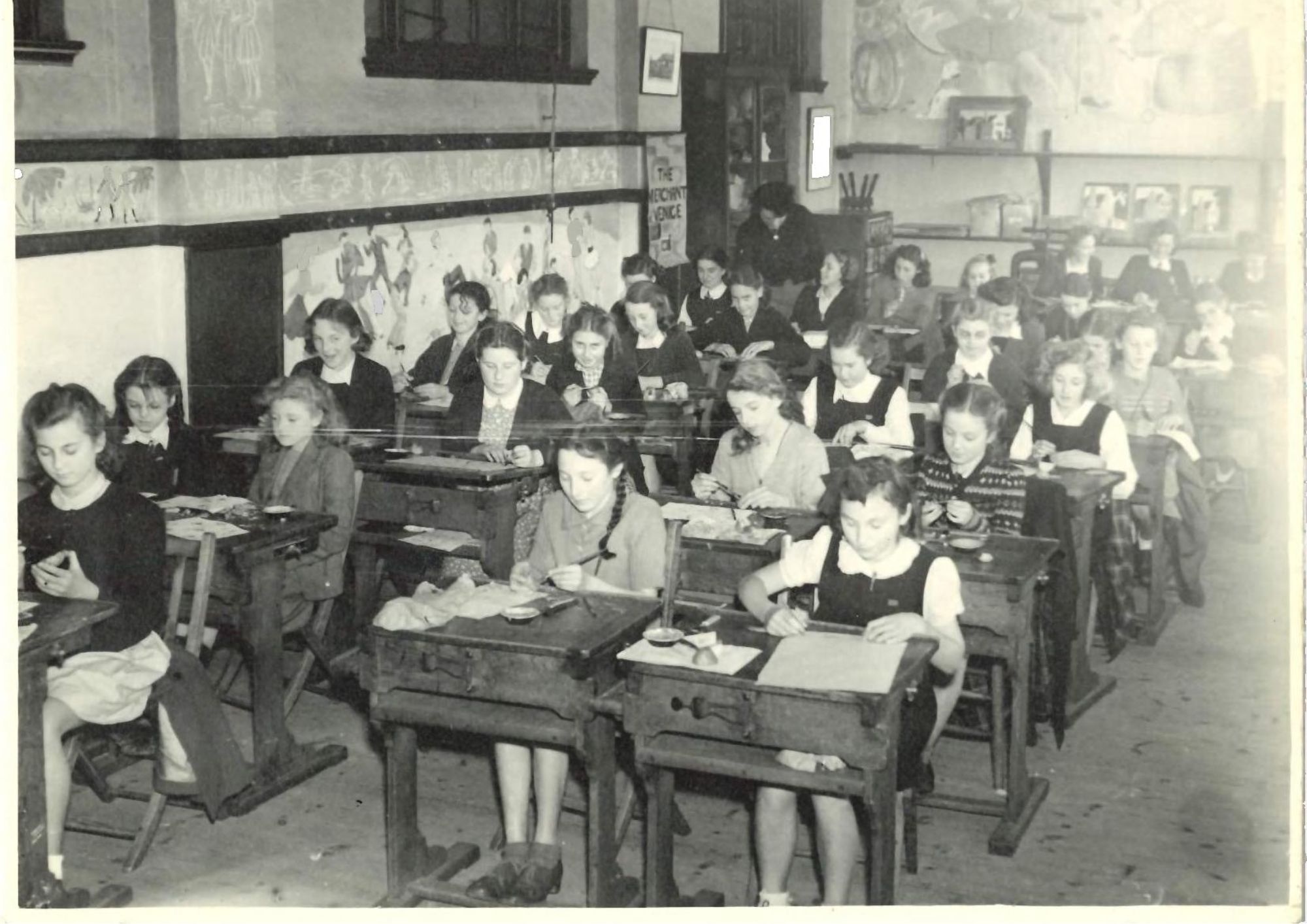
c.1940 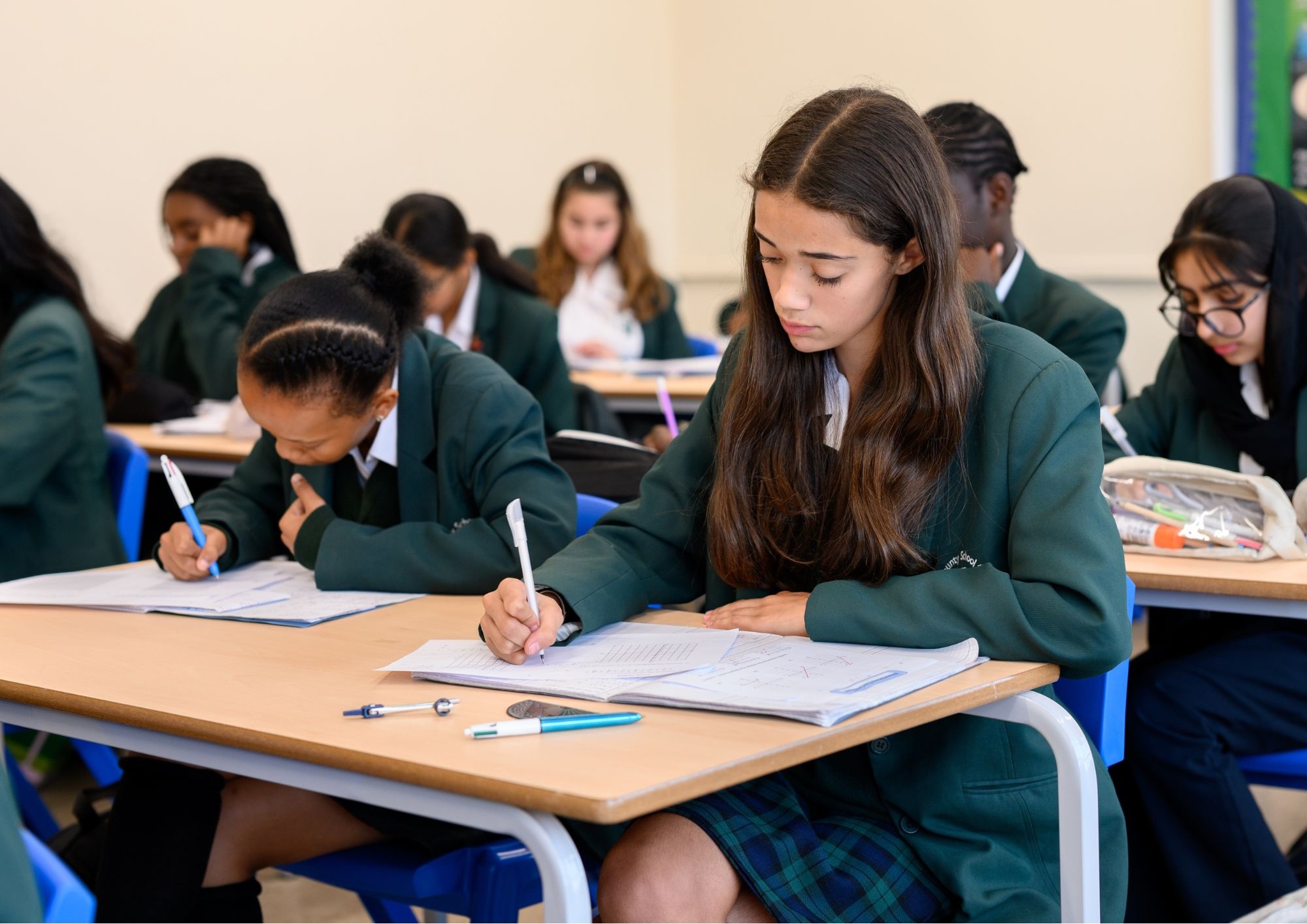
Present -
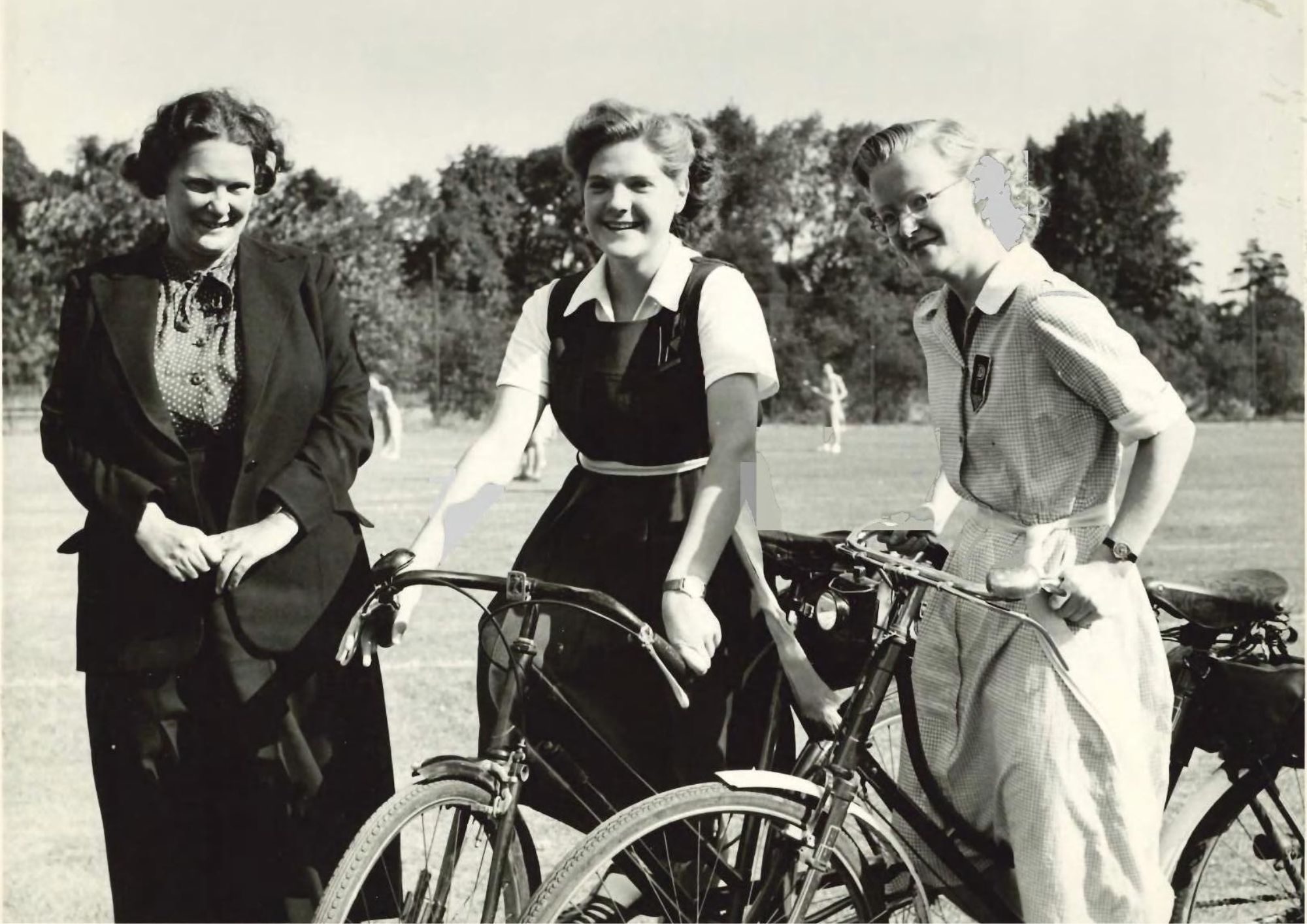
c.1940 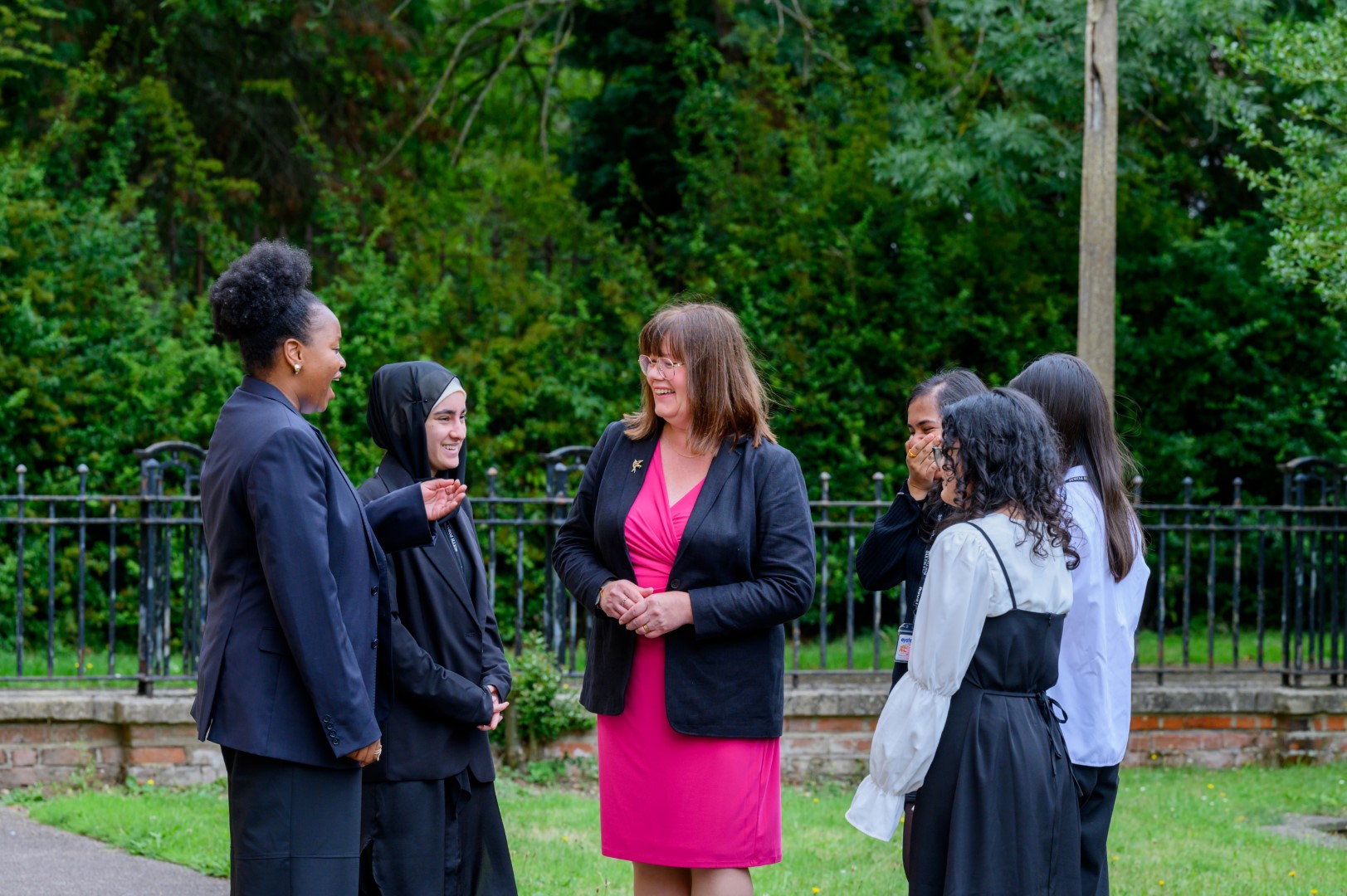
2023 -
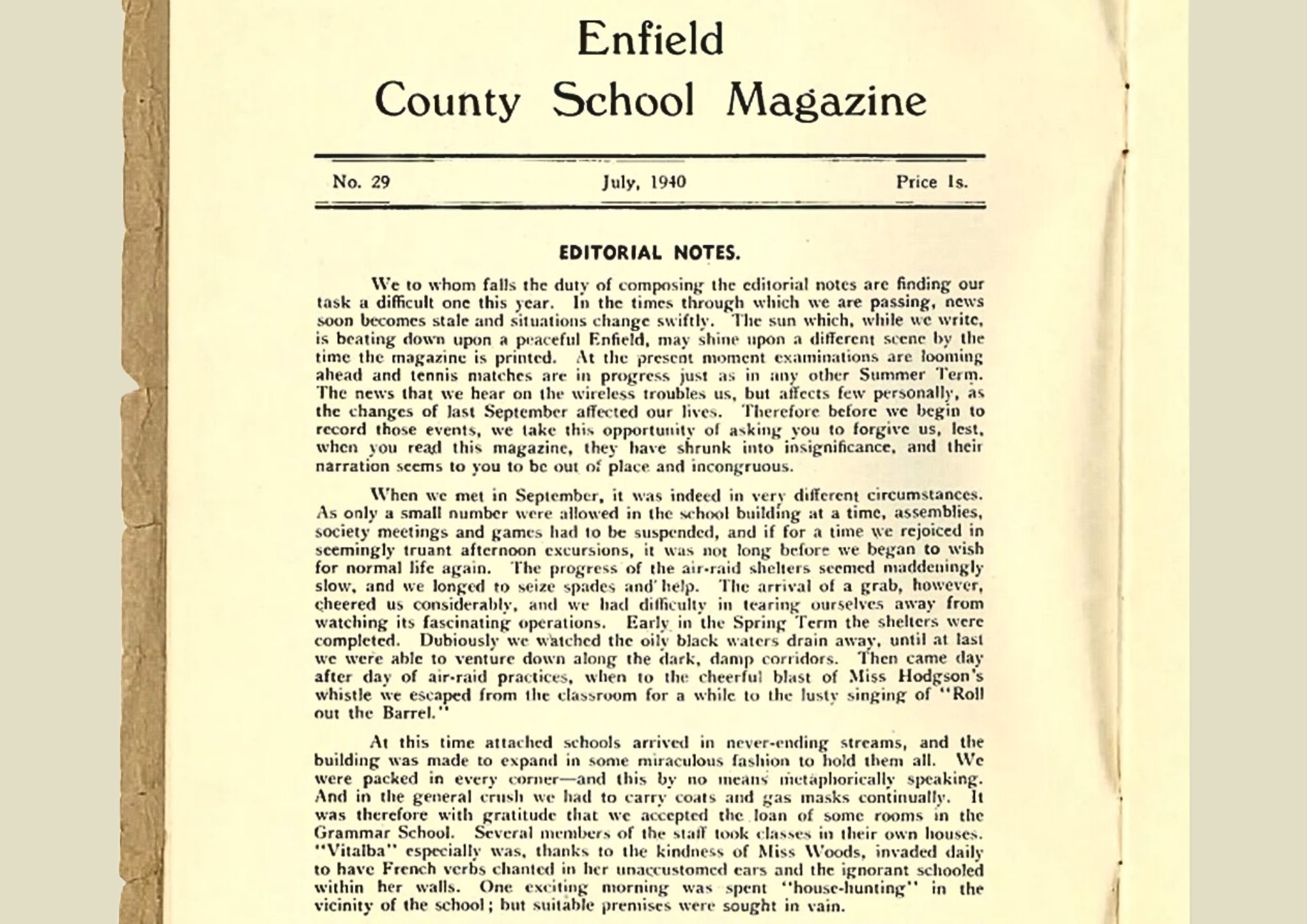
July 1940 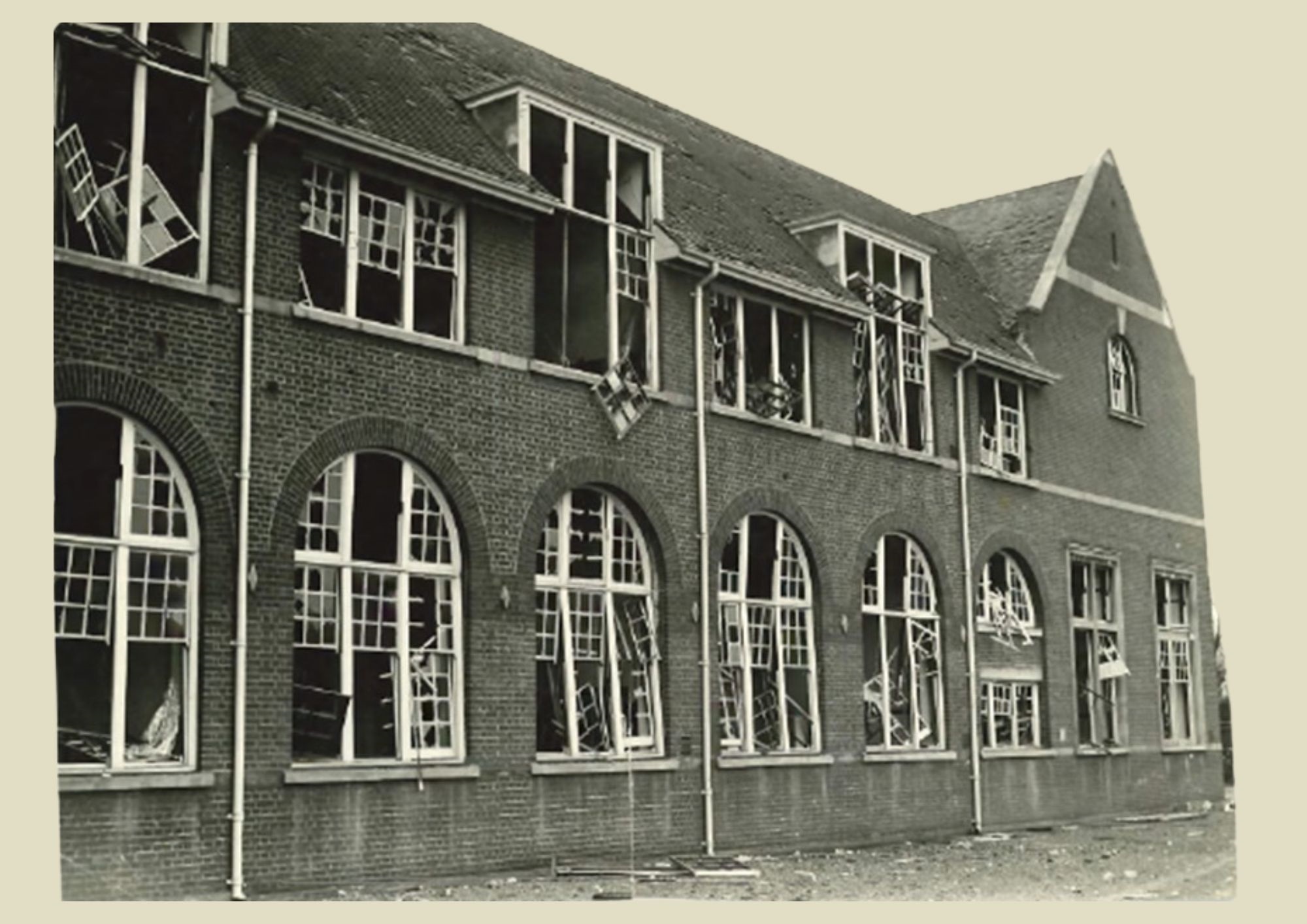
April 1941 WWII
"The sun which, while we write, is beating down upon a peaceful Enfield, may shine upon a different scene by the time the magazine is printed."
Editorial Notes, ECS Magazine, July 1940
ECS Magazine, July 1940
The Old Building war damage, April 1941 -


-
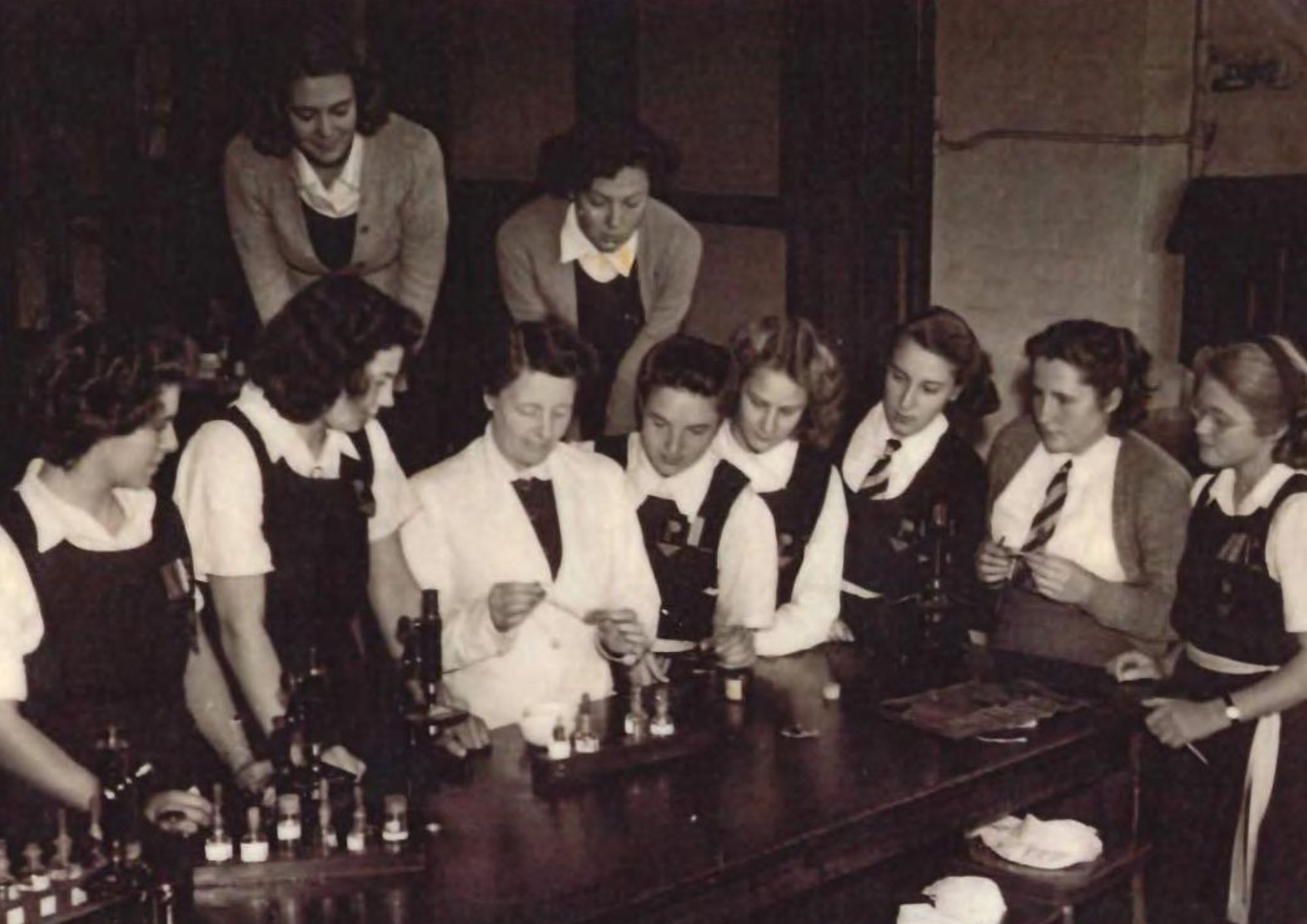
1948 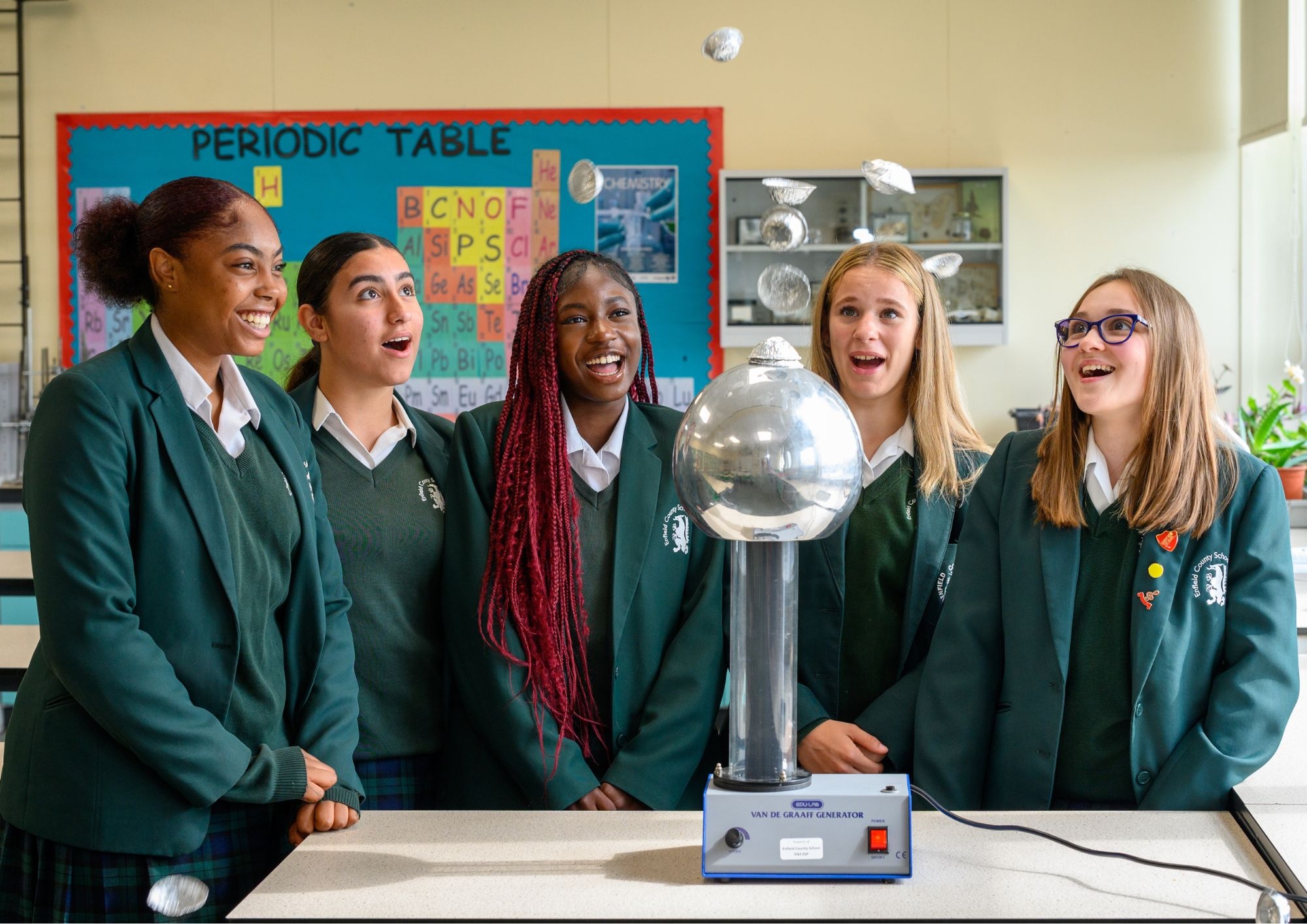
Present -
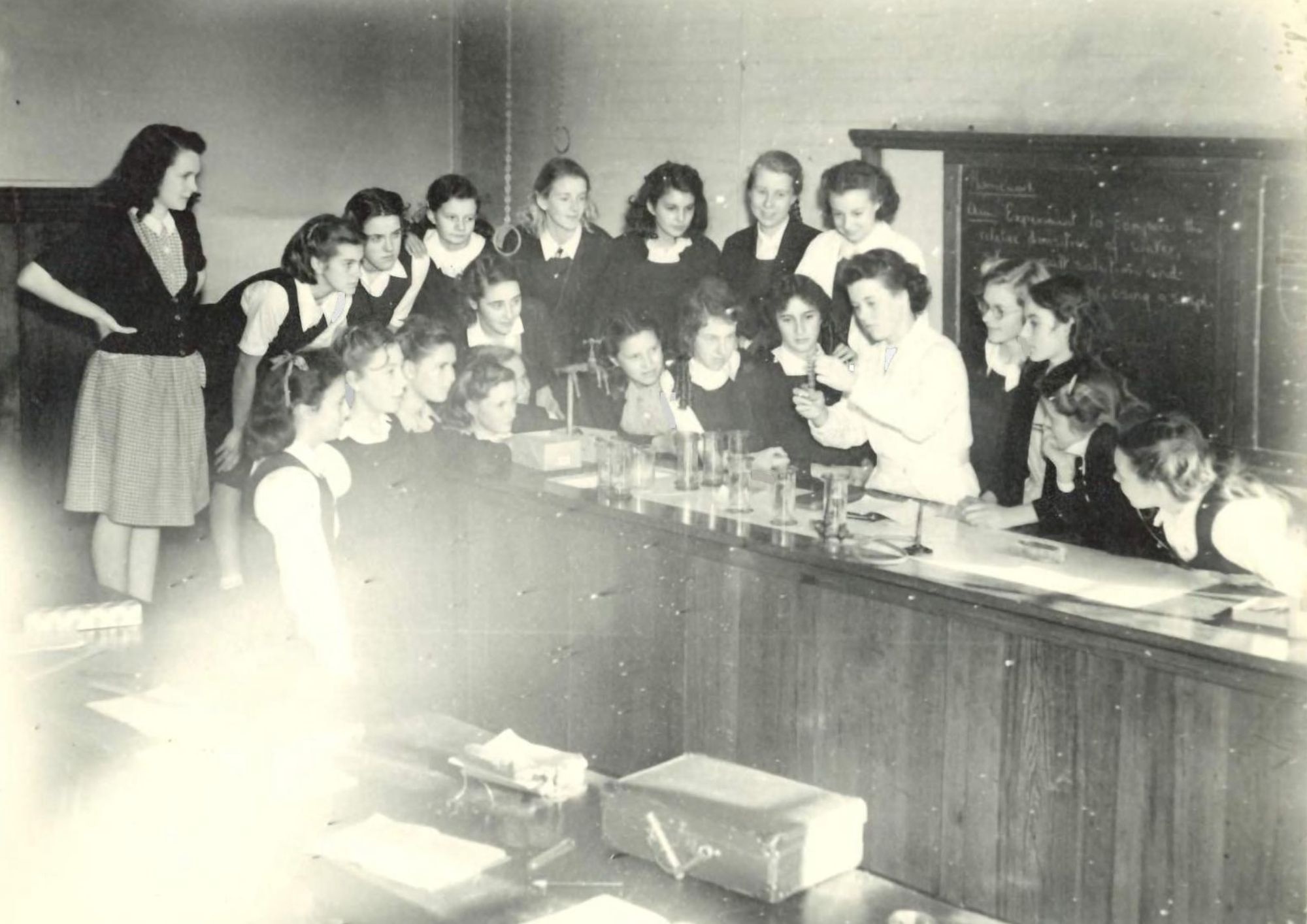
1948 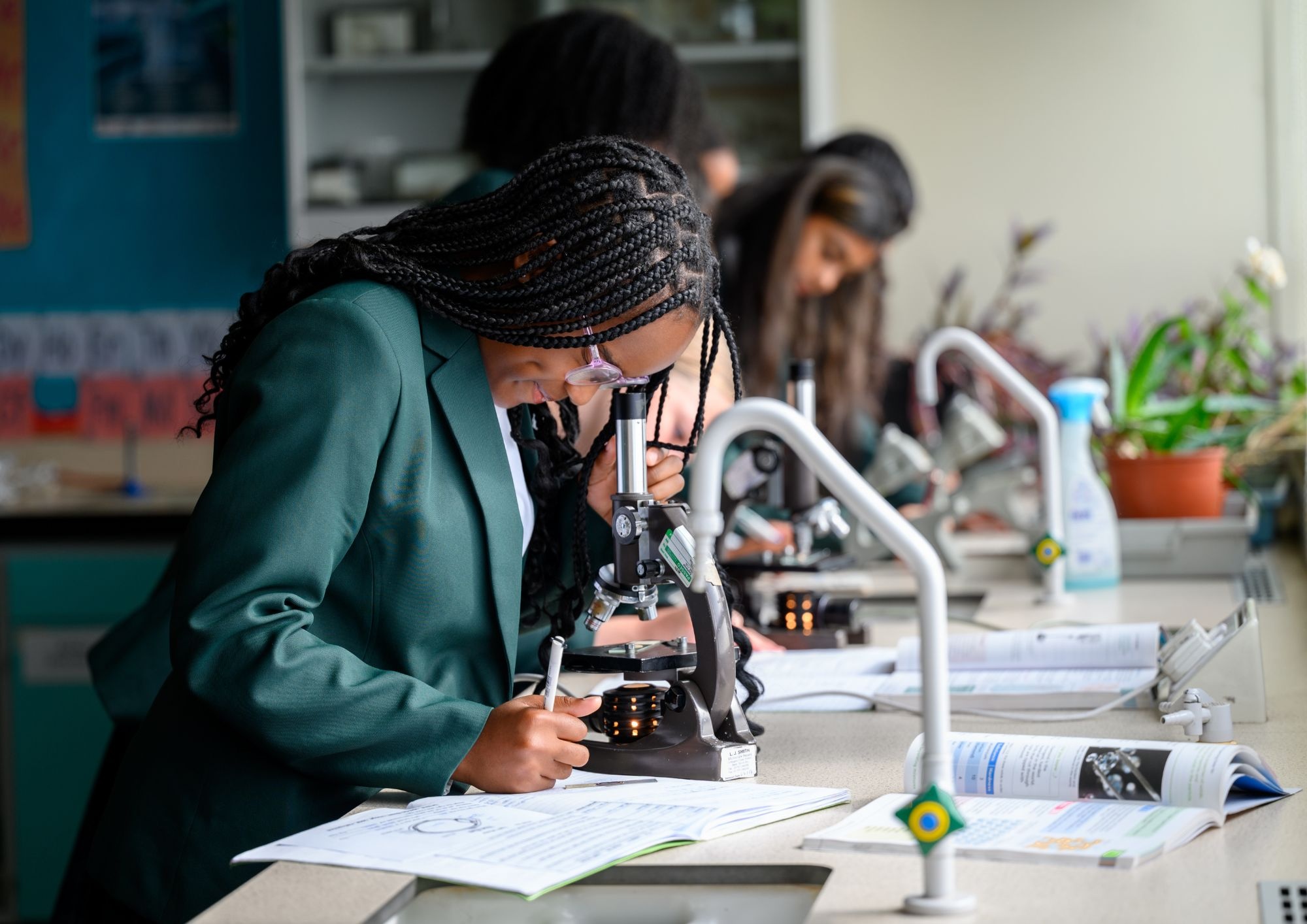
Present -
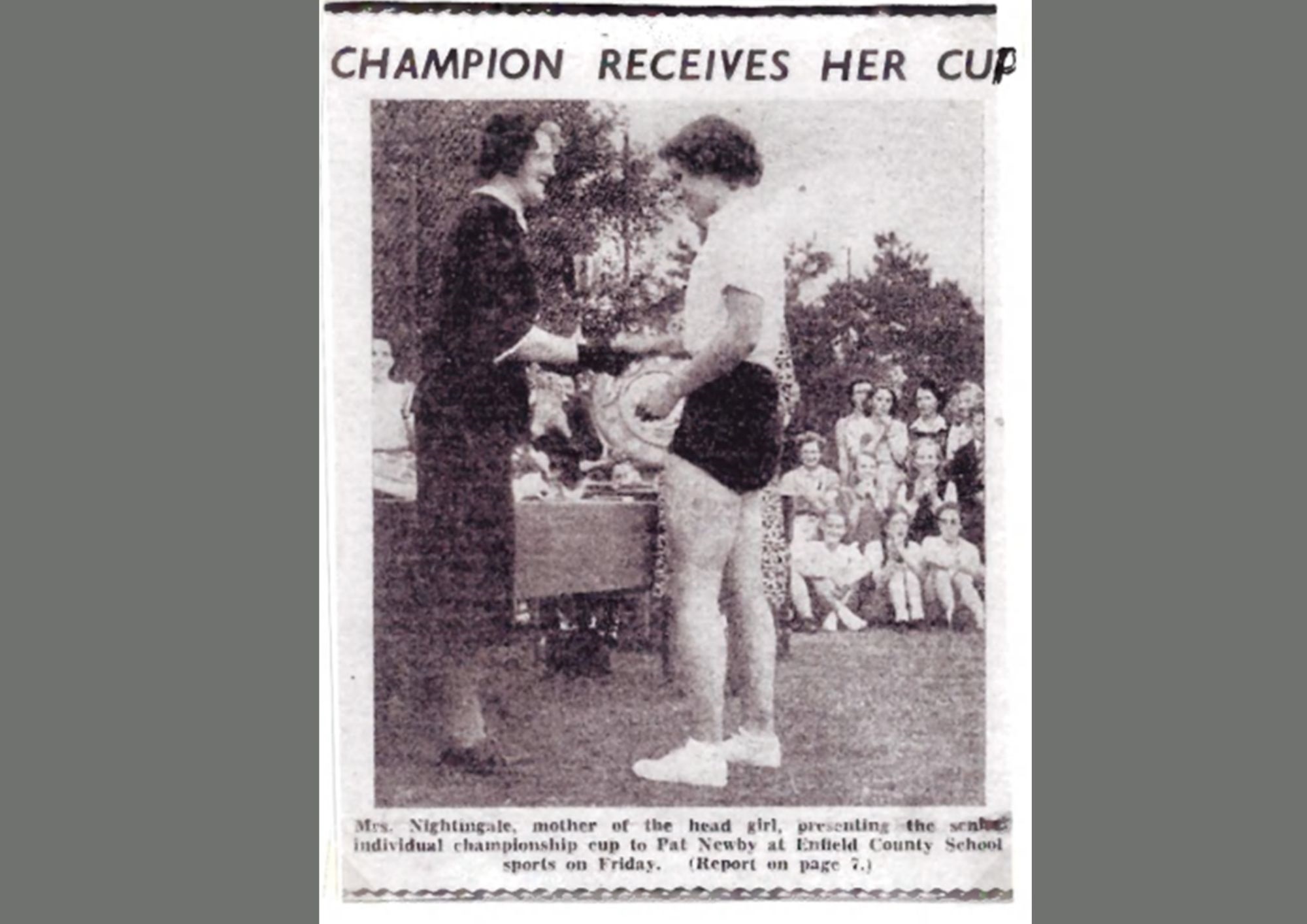
1949 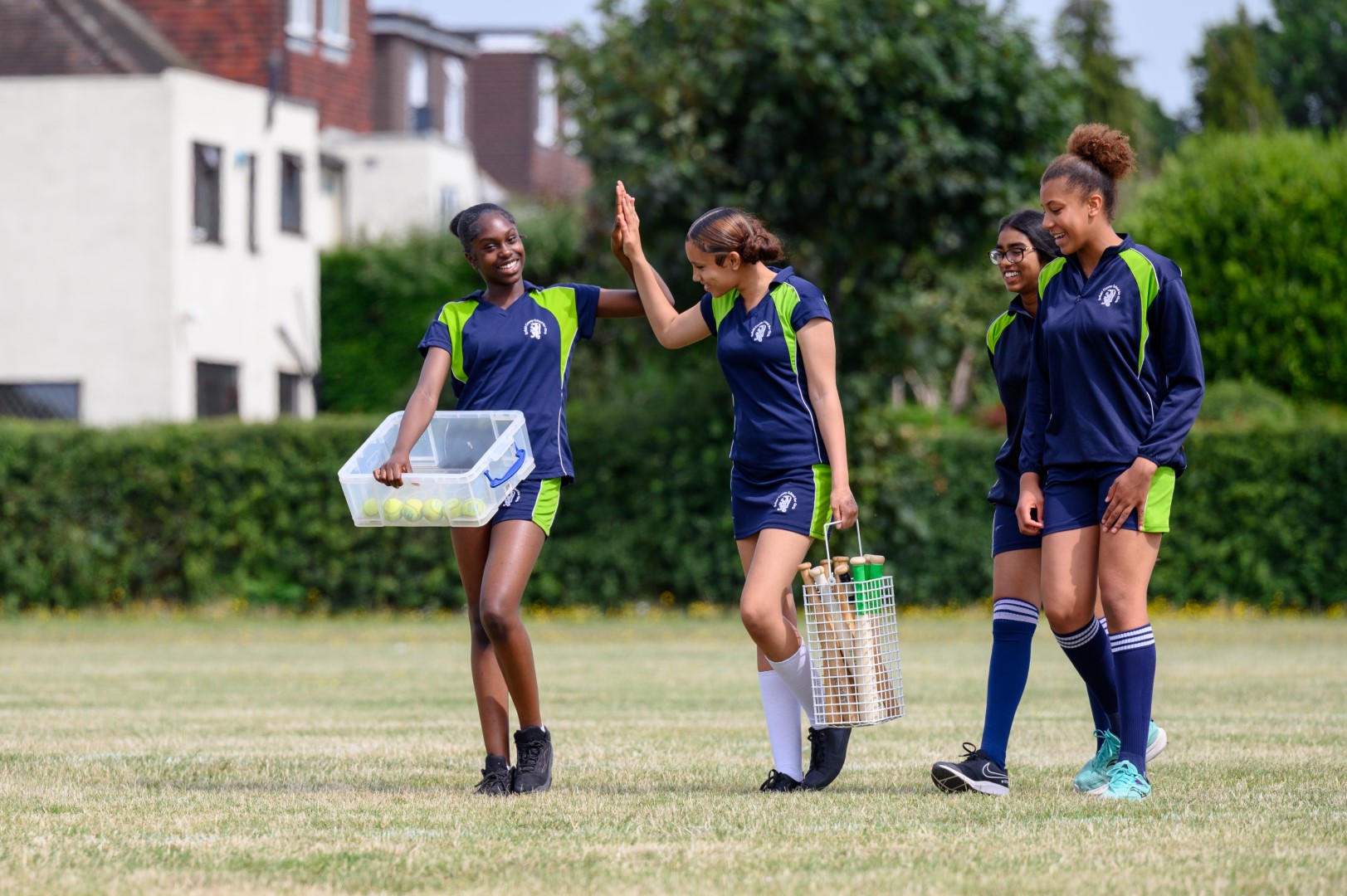
2023 -
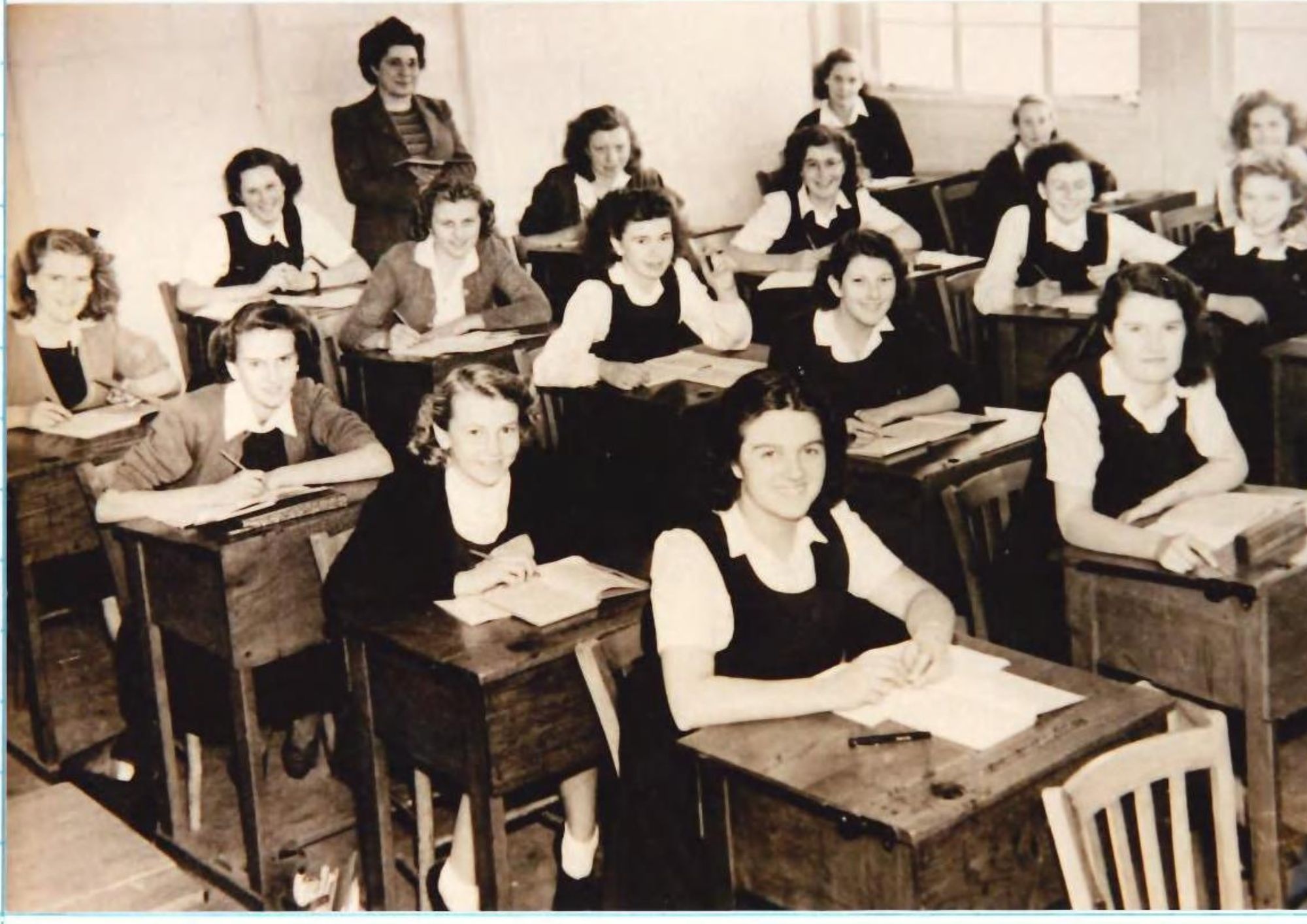
1950 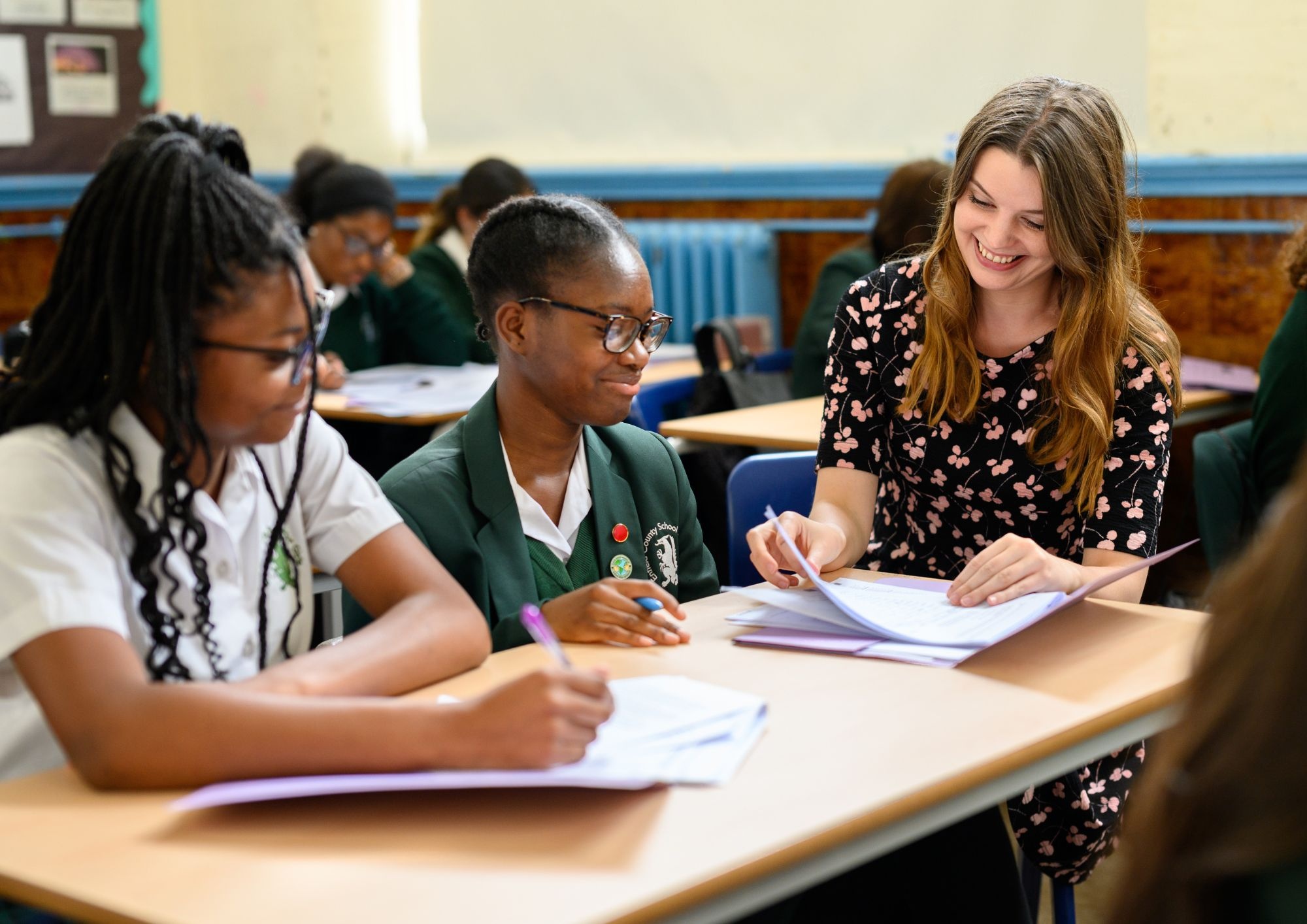
Present 1950s
ECS Maths lesson. Lift-up lid desks with ink wells: each pupil stored her books in her designated desk in her form room. Students used fountain pens for best work, pencils for rough/draft work. In the early 1950s ball-point pens were not readily available and, even when they became so, they were not permitted at ECS because they didn’t promote good handwriting.
-
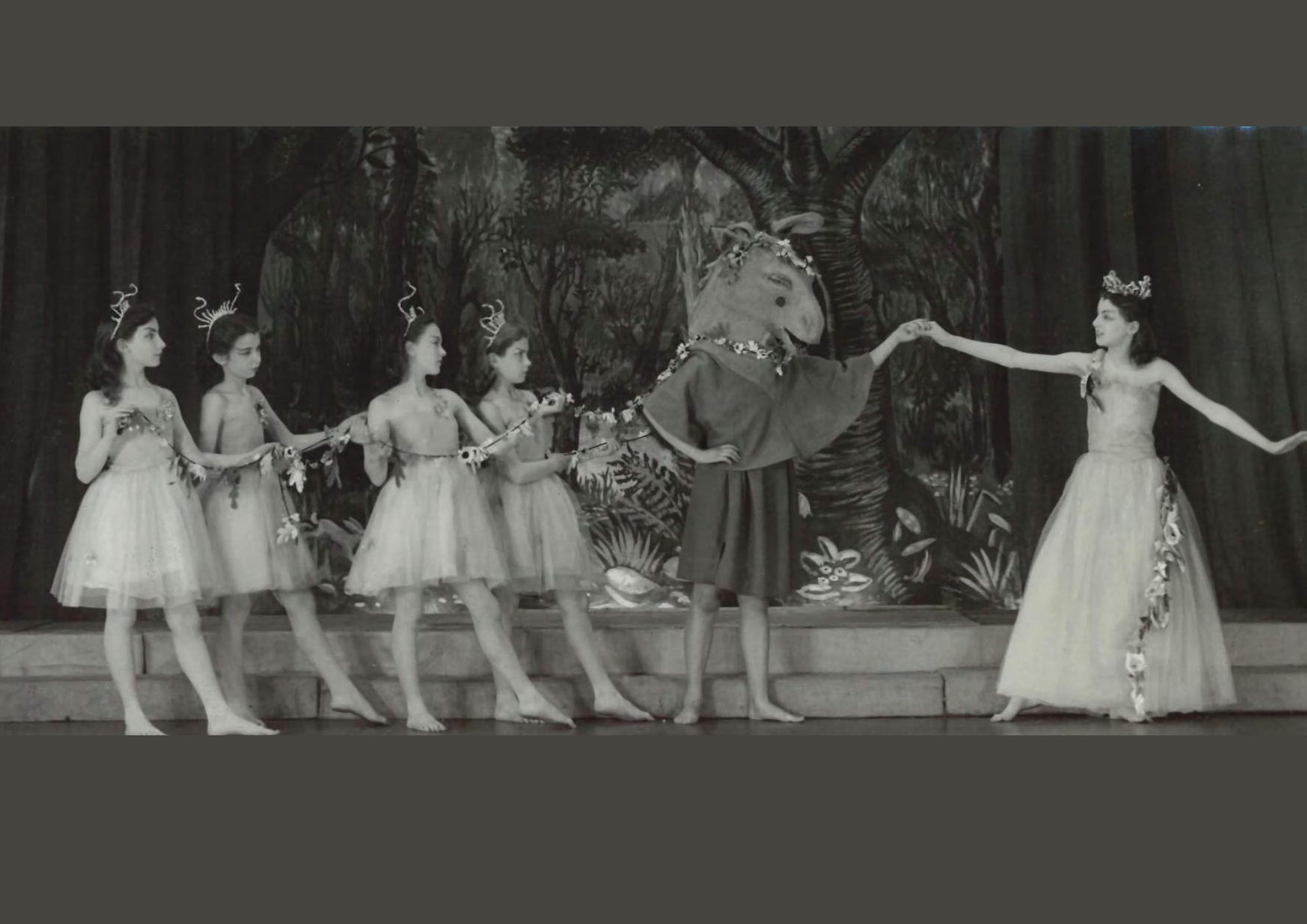
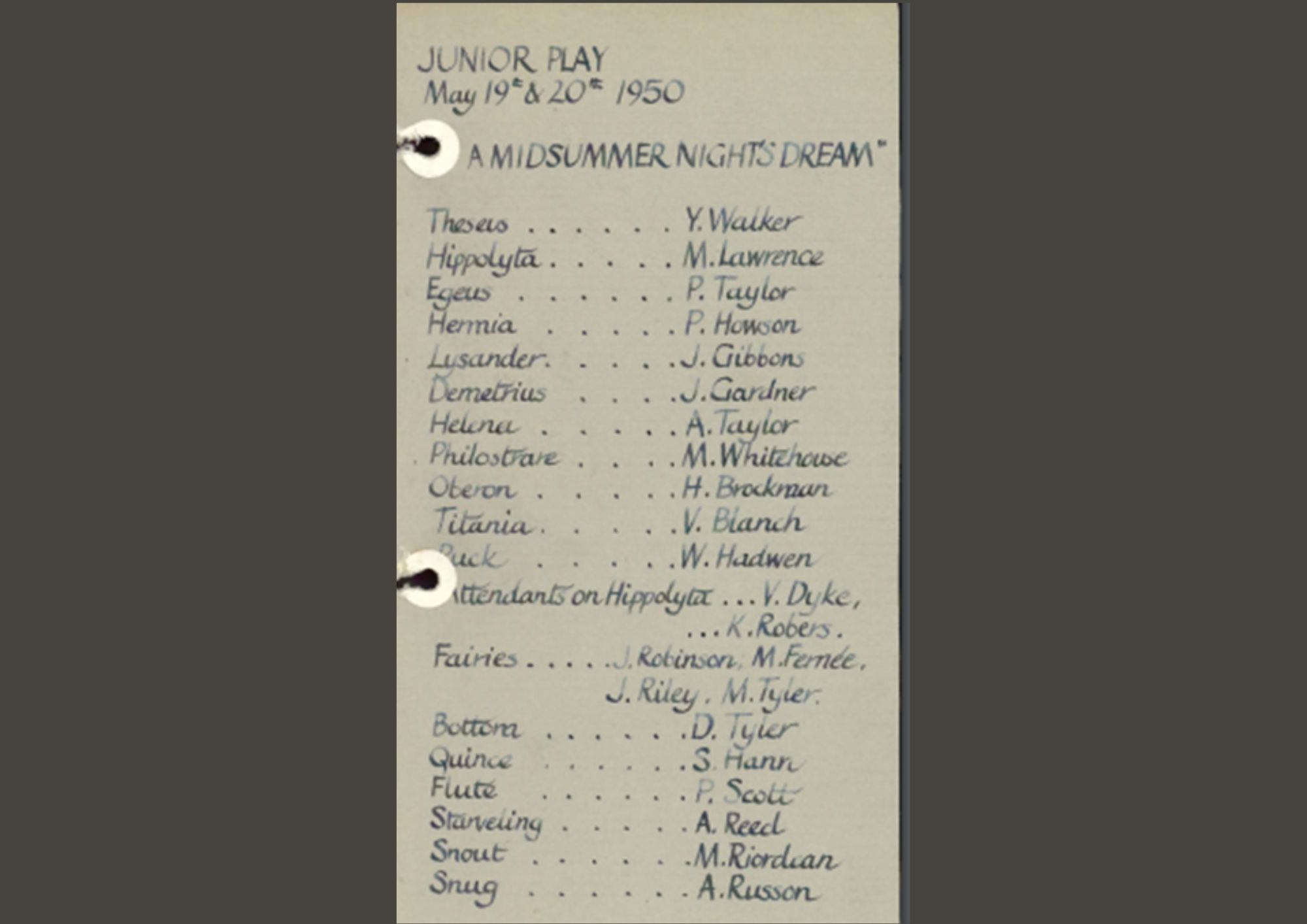
-
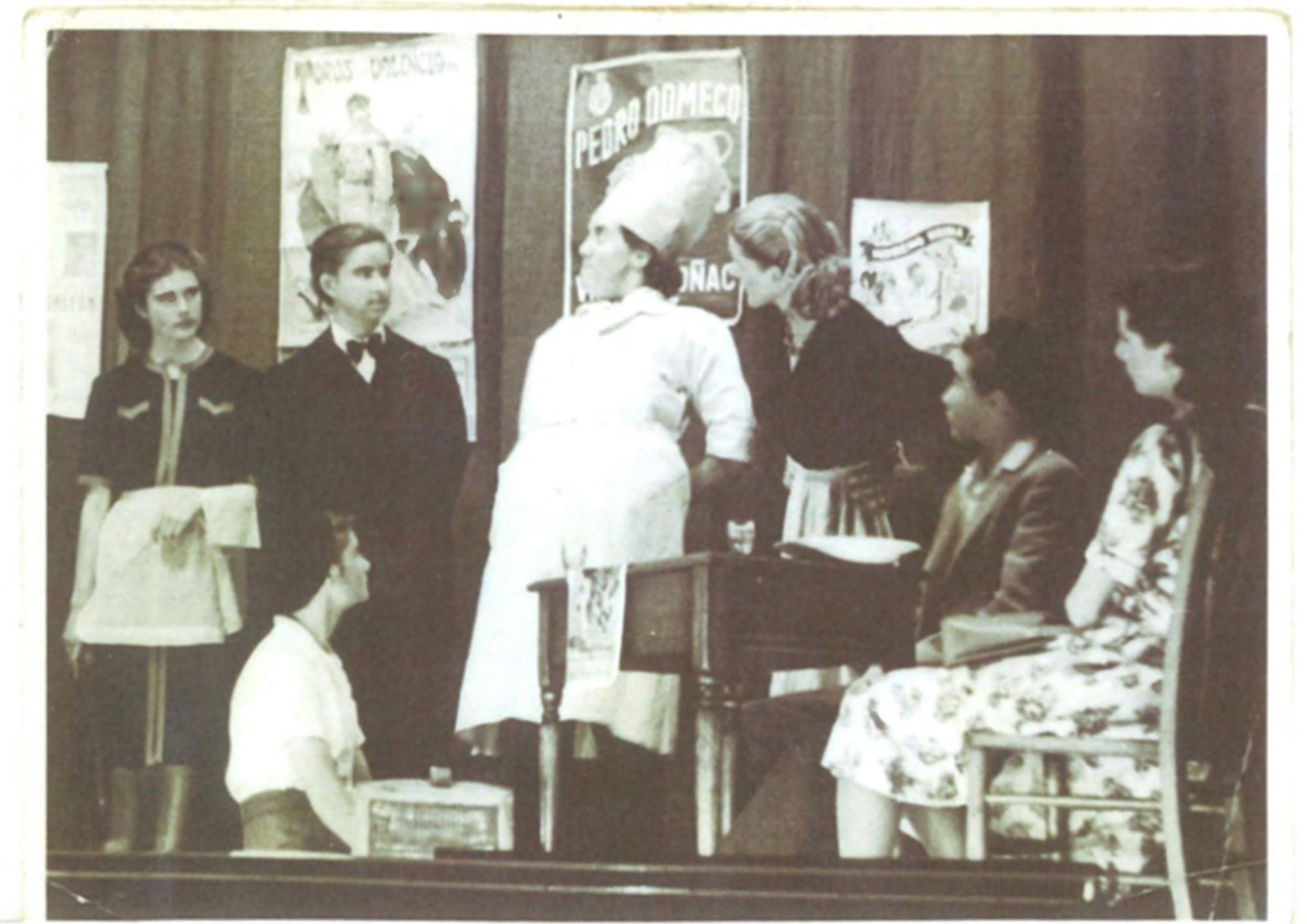
-
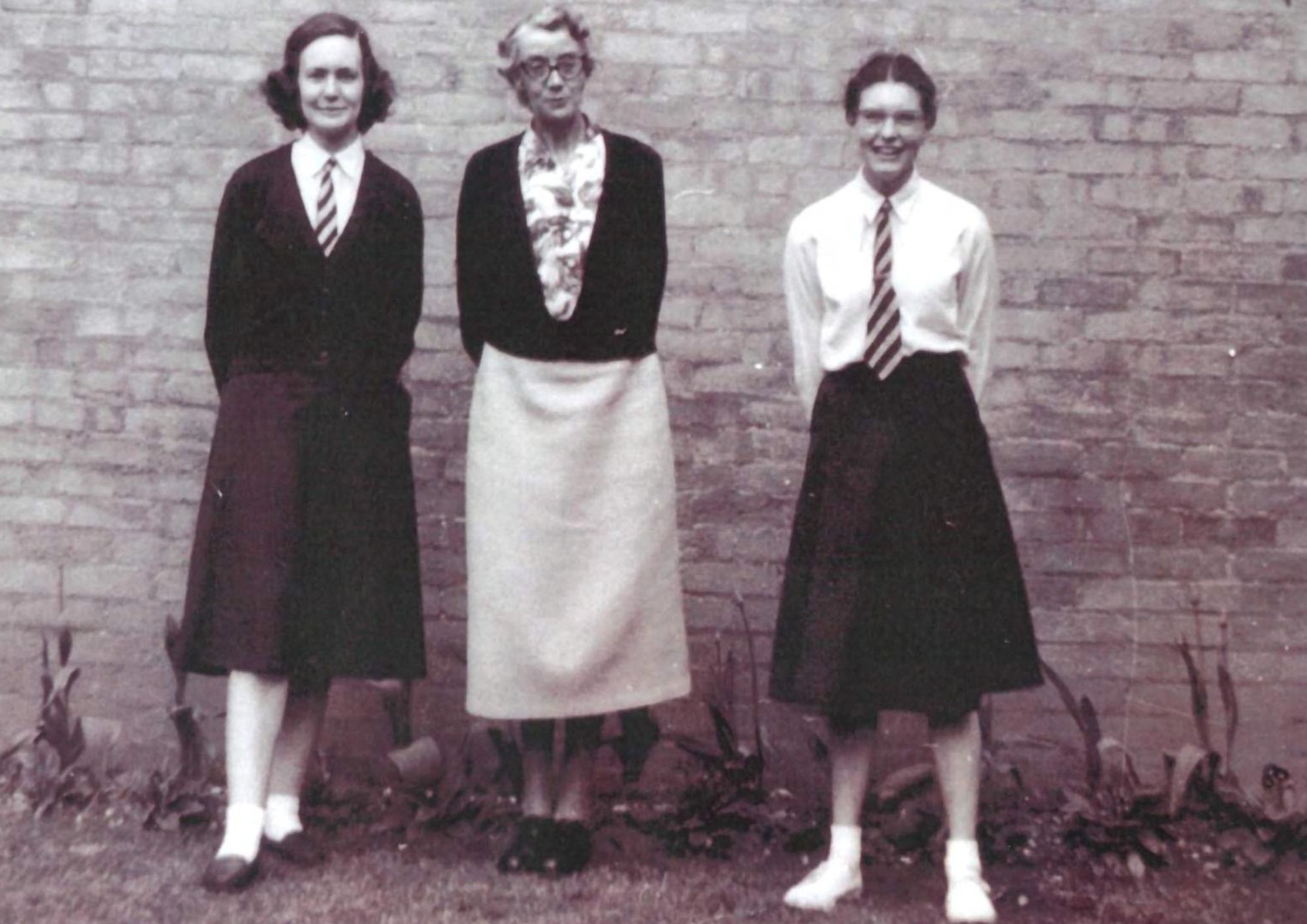
1953 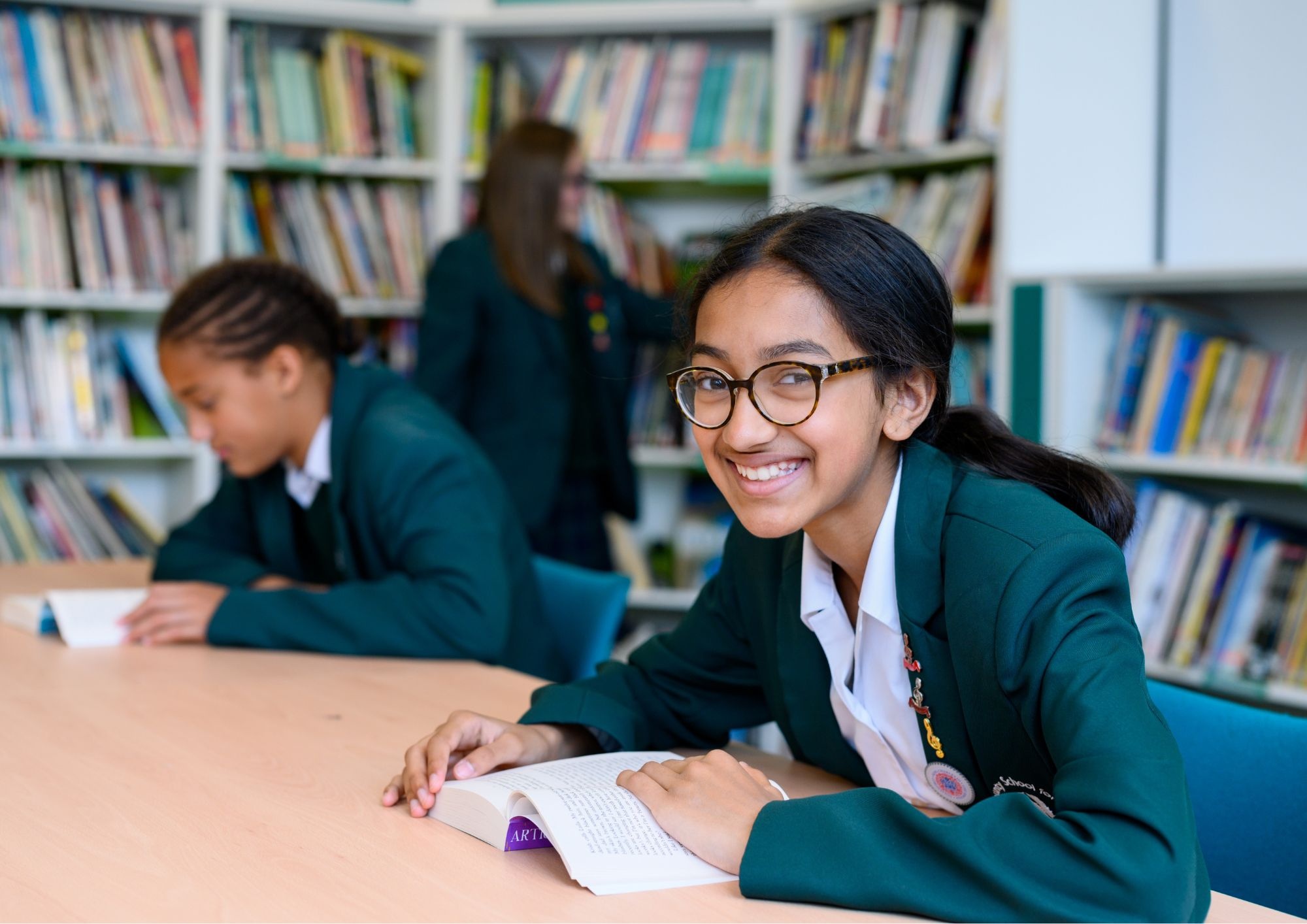
Present 1953
ECS Librarians pictured in 1953 as the library introduces,"Special borrowing privileges for the Sixth Form."
Library Report, ECS School Magazine (ed. 1953) -
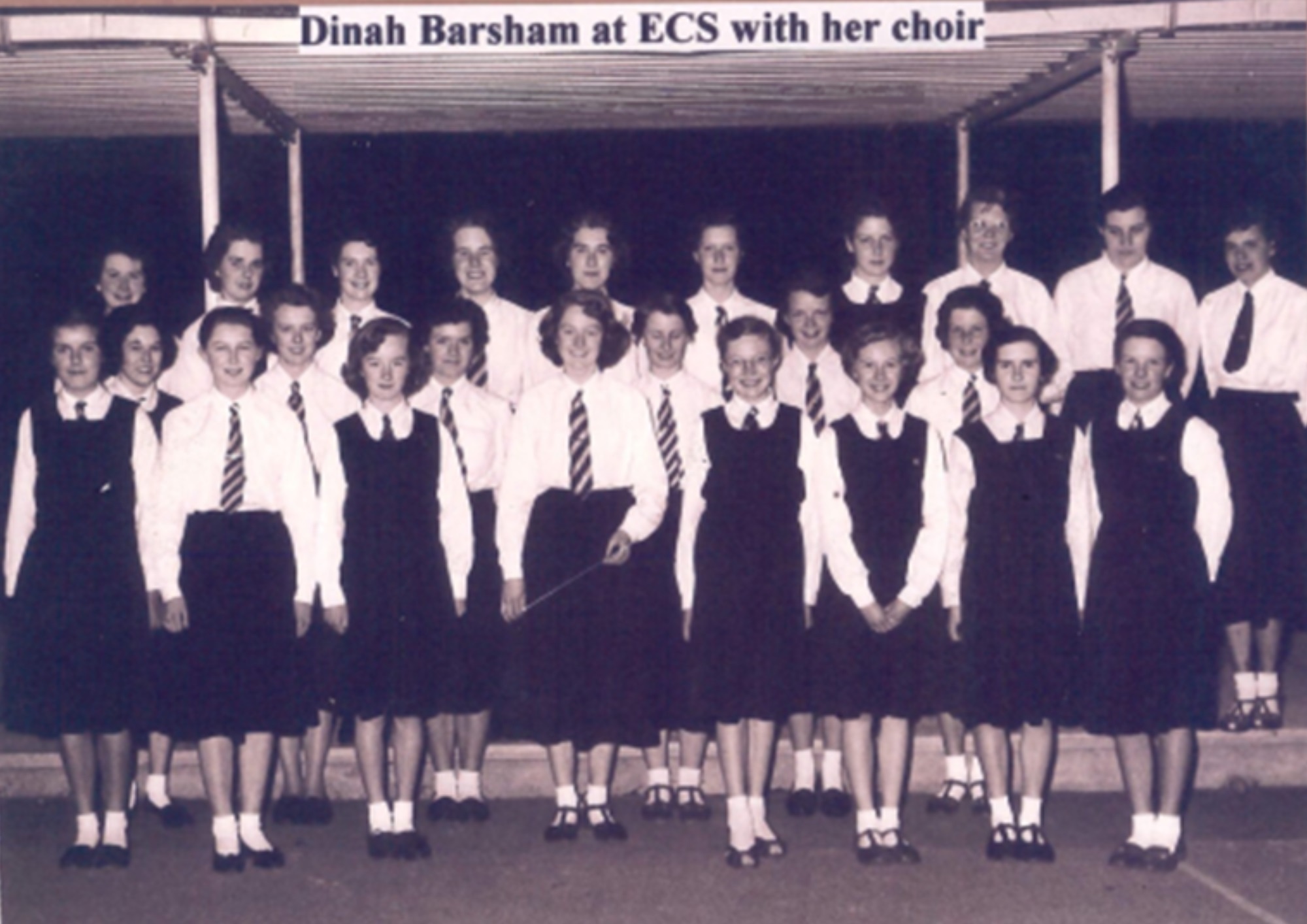
1954 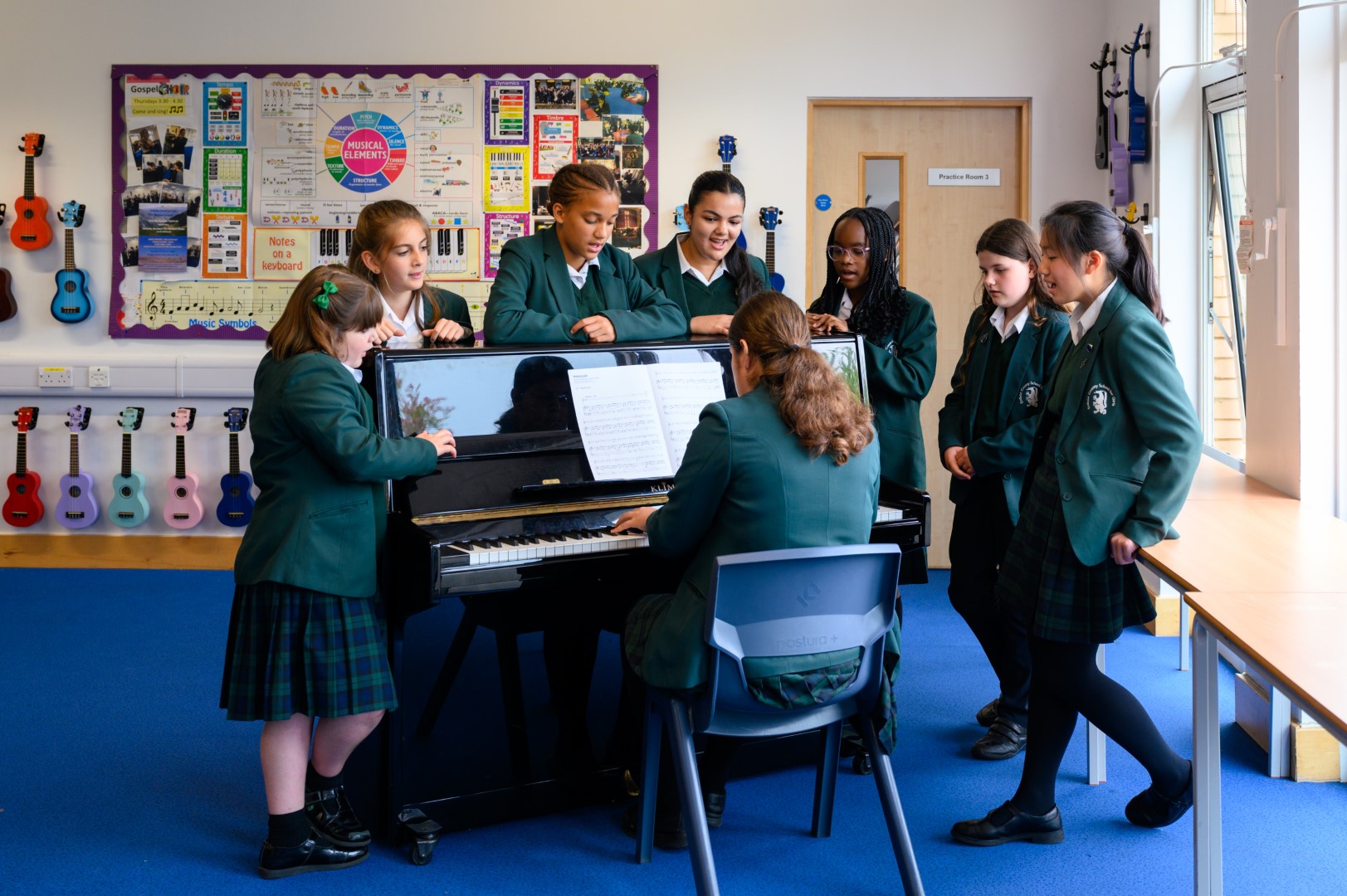
2023 1954
In 1954 Dinah Barsham established a choir at ECS. After leaving County in 1956 Dinah went on to study conducting at the Royal Academy of Music, London.
State Scholar, junior and senior Sports champion, Dinah specialised in conducting and choral training, lectured at Homerton and became a senior lecturer for the Open University.
Dinah's older sister Eve was the first woman to gain a first in Music at Oxford University, subsequently winning a scholarship to research for her doctorate. -
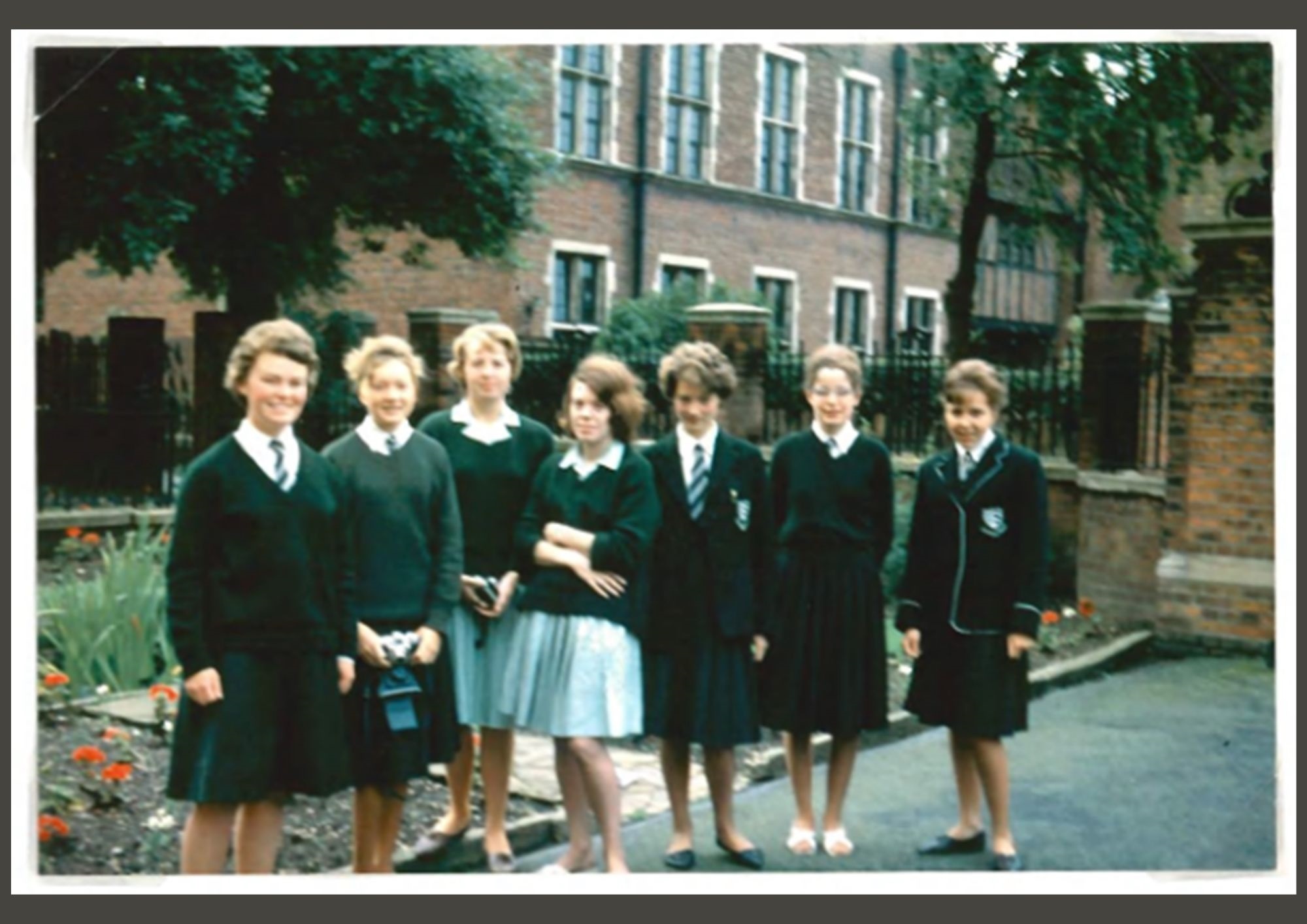
1962
Rule Breaking Day
Green and white summer dresses were optional for County students. Summers in the early 1960s were generally cool so students wore winter uniform all year round, as indicated by this photograph taken July 1962.
The student on the extreme right is a Prefect, shown by the white braid on her blazer. At least two students are contravening school rules in this end of term tradition, with their peep-toe and backless shoes. -
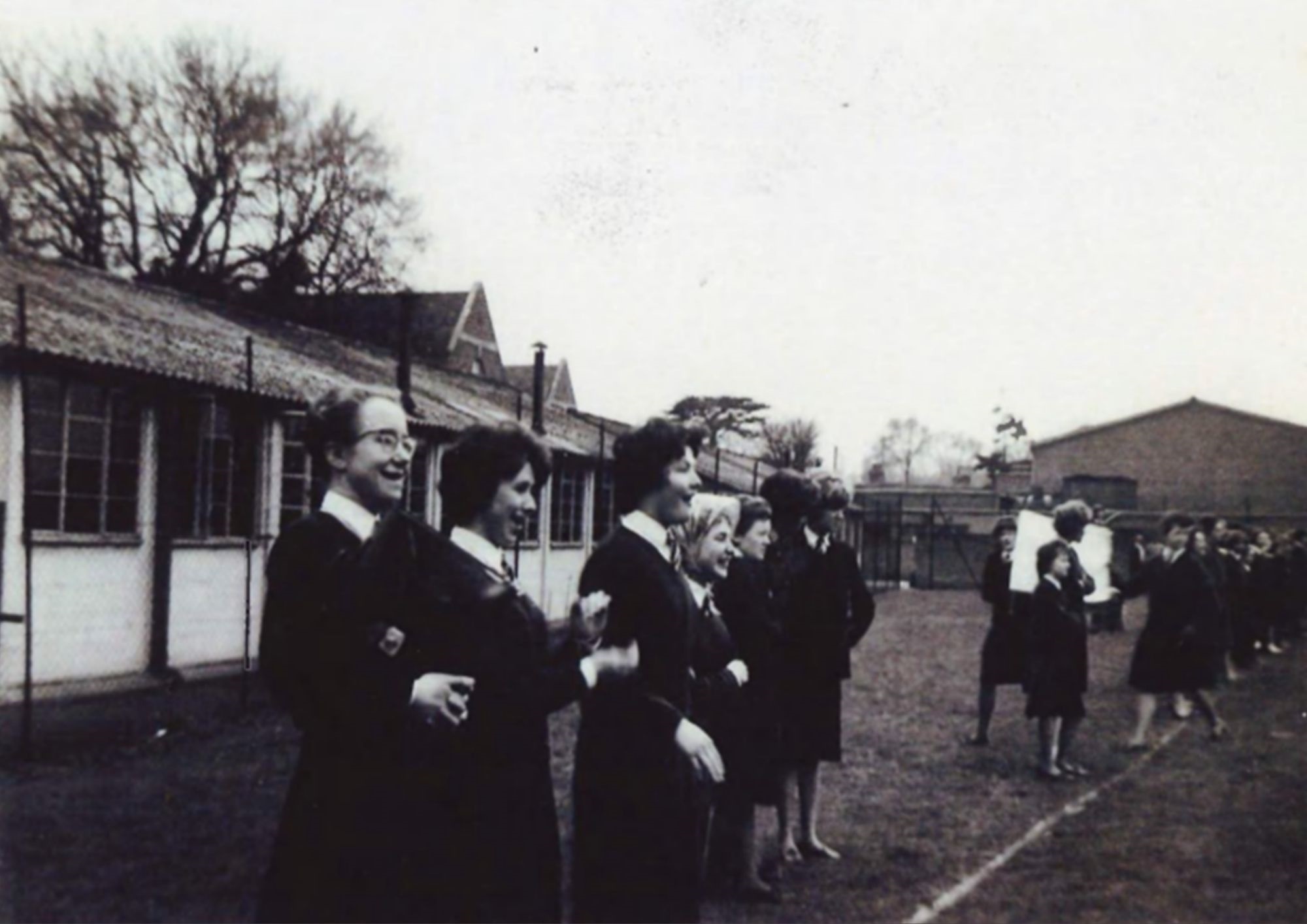
1963 
2024 -
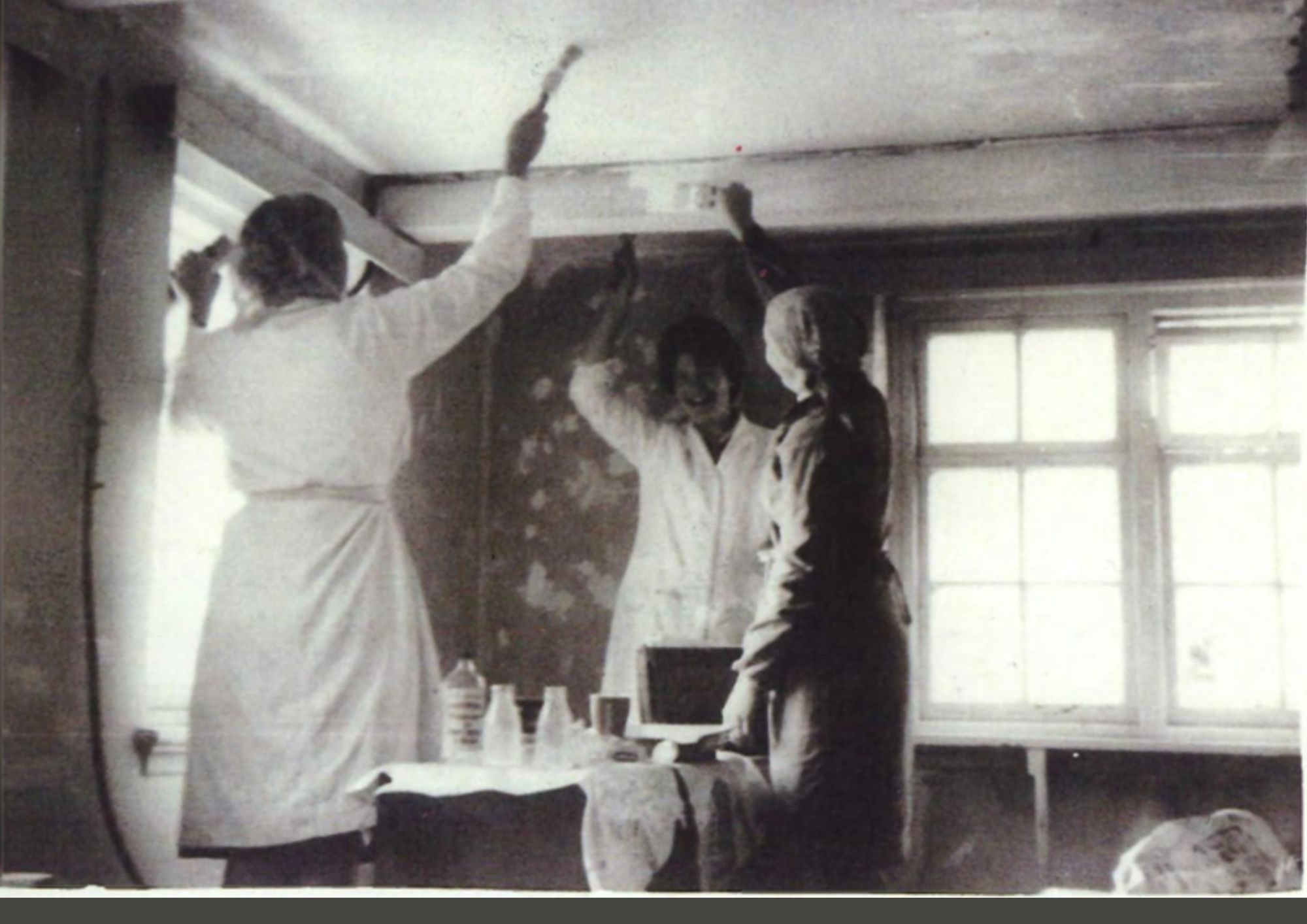
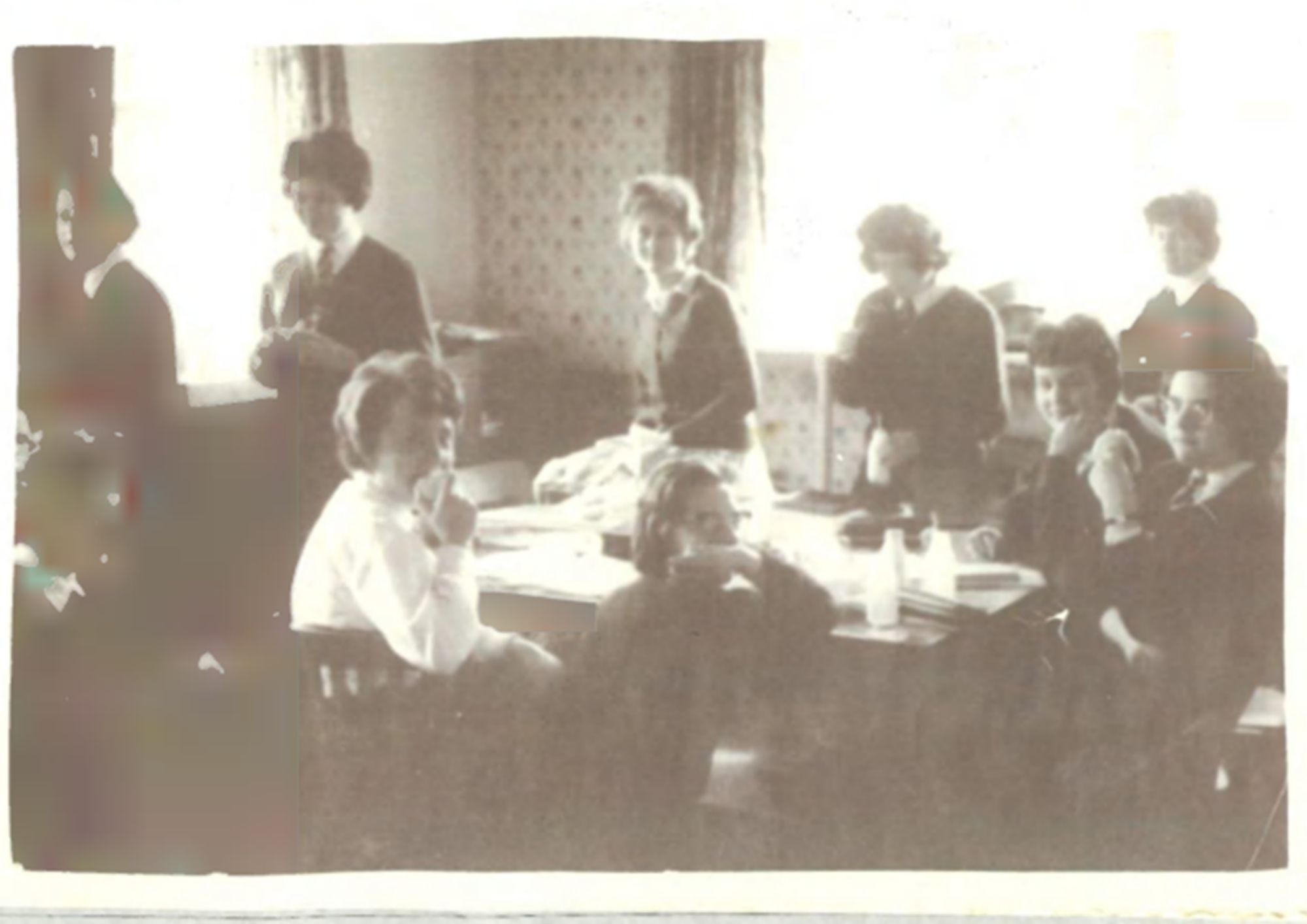
1963
Painting the Prefects' Common Room vs breaktime in the Prefects' Common Room.
In the 1960s GCE A levels took place in June. Term usually ended around 20th July so there were a few weeks when Sixth Formers had no formal lessons but were still required to attend school. There was usually plenty to do: supervising Preps (if they were Prefects); mending text books; stocking taking in the library; repairing sports items such as hockey sticks; assisting with Sports Day preparations; helping with the end of term concert and staff leavers' presentations. In the summer of 1963 there was also the re-painting of the Common Room. -
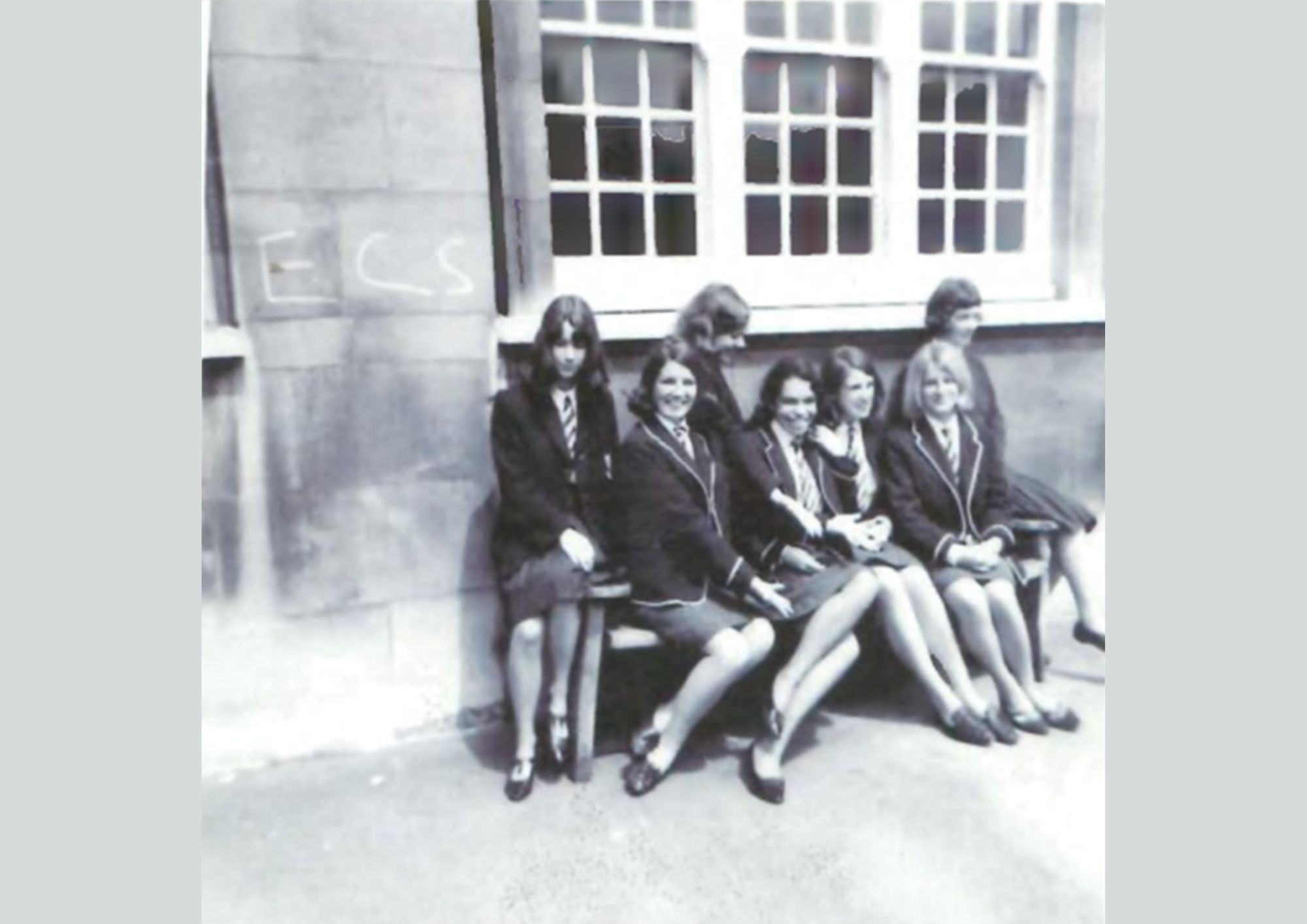
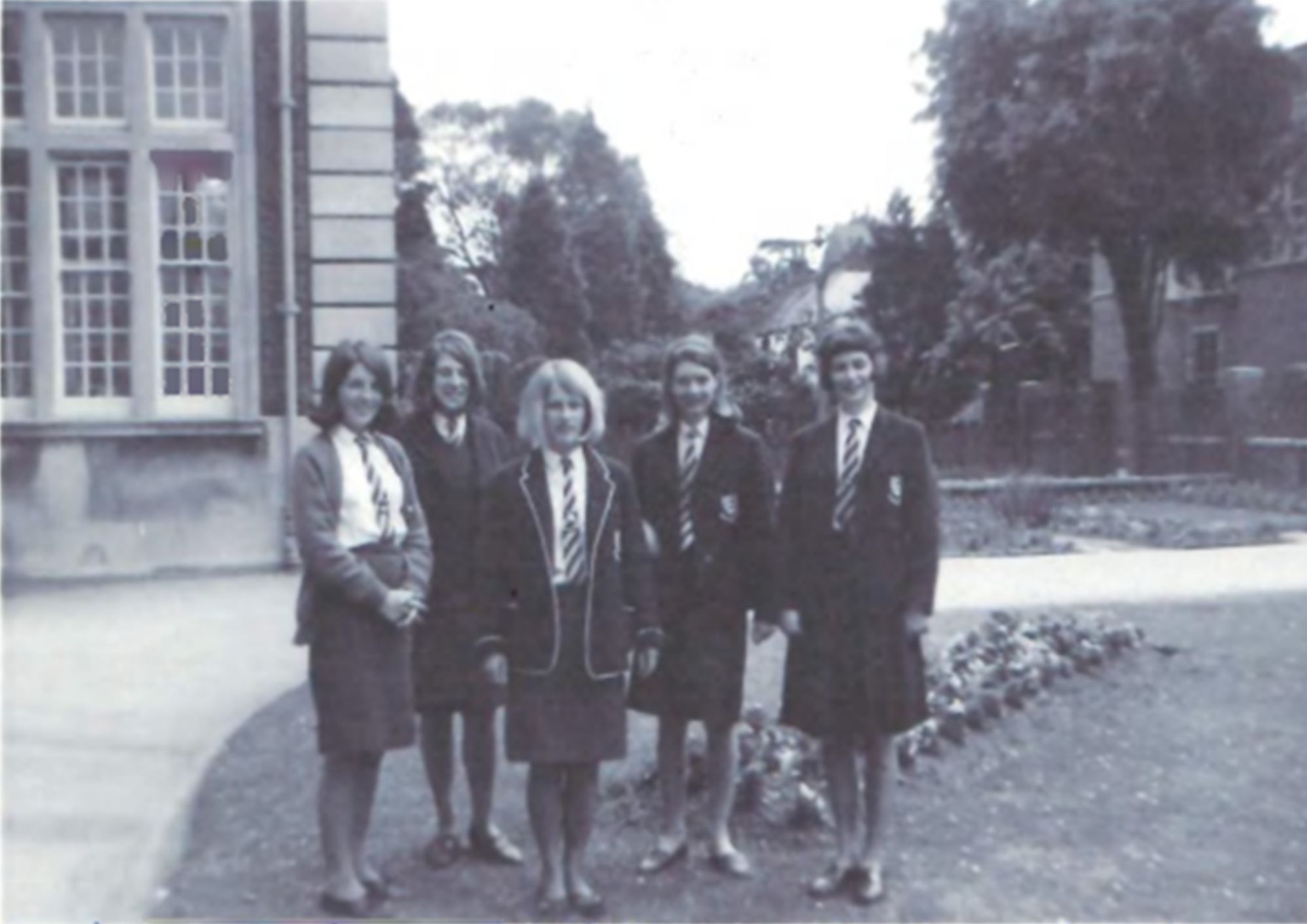
-
